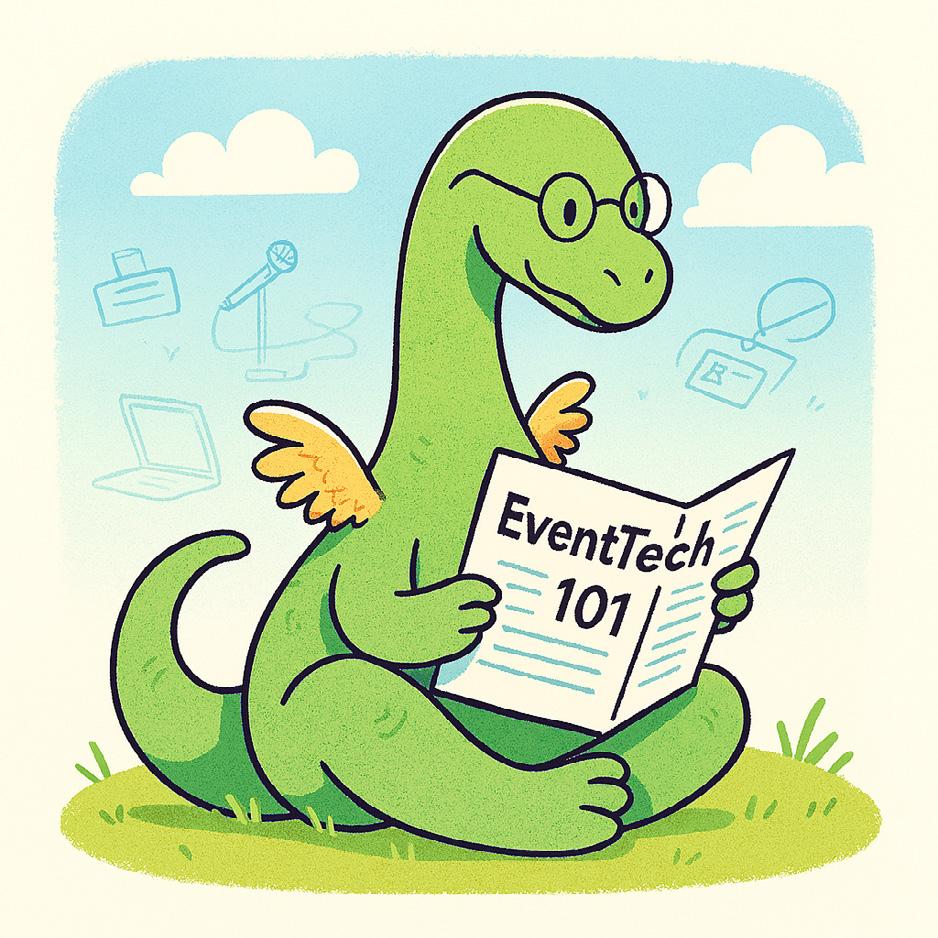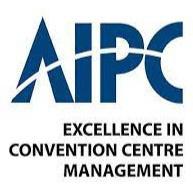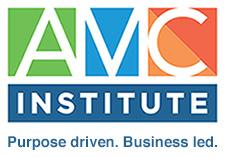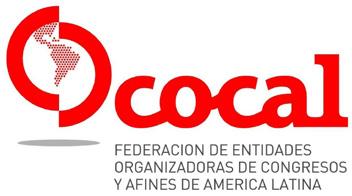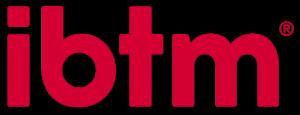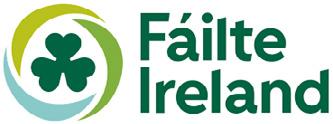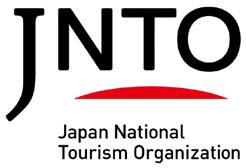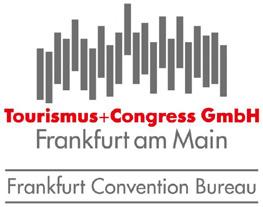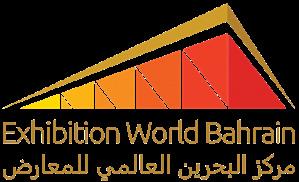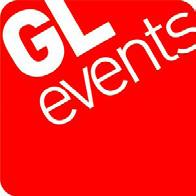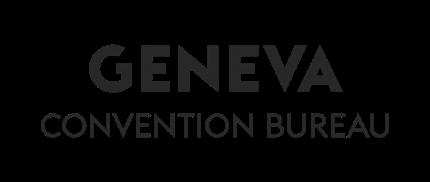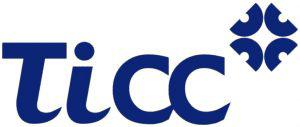From
Good
To
Great What makes a team go from good to great?


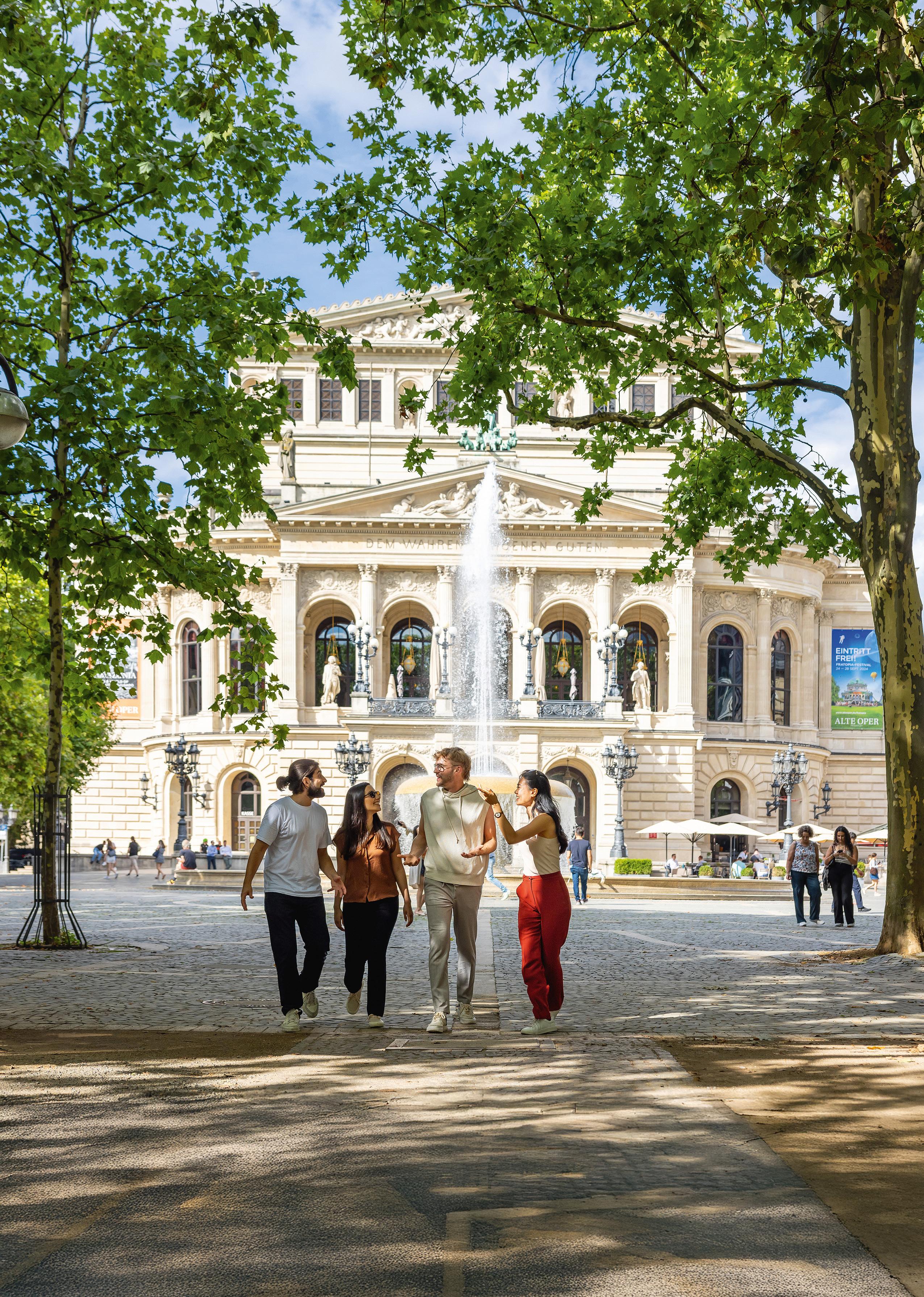


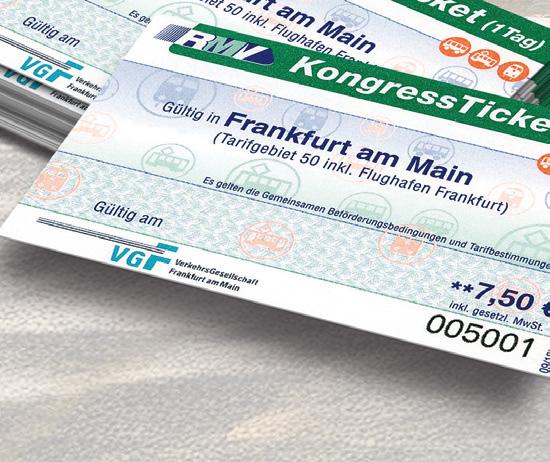




Good
Great What makes a team go from good to great?










I’m delighted to welcome you to this edition of PCO Magazine, which this time focuses on one of my favourite subjects: the incredible power of teams and teamwork!
In our industry, success is measured by different elements, but especially by the skills and commitment of the PCO team, the 'heroes' behind the scenes. Teams that value and respect the importance of collaboration and function with a high sense of partnership, they do not just deliver 'good' events, they perform 'extraordinary' events.
What makes a team from good to great? Key characteristics, such as shared purpose, clear understanding of roles and responsibilities, diversity of thought, creativity, flexibility and mutual vision can bring significant results, driven by a collective spirit.
At IAPCO, the universally accepted benchmark for quality in the meetings industry, we feel proud of the achievements of some of the most exceptional teams worldwide, especially in the IAPCO community. We are delighted to have the opportunity to share some of these most impactful stories in this issue, showcasing the DNA of high-performance teams of our community.
It is important to remember that IAPCO accredited PCOs consistently demonstrate excellence and high standards through a unique quality assurance platform, knowledge sharing and a continued professional development — key drivers in the continued elevation of services provided by their teams of experts. This is the magic world of IAPCO, teamwork empowered by passion, agility, proactivity and attention to detail!
Let’s continue to invest in our people, as, at IAPCO, excellence is always the result of collective effort!
Sissi Lignou President, IAPCO

In every organisation, no matter the size, success is never the result of a single individual—it is always the outcome of a great team. As we bring you this special issue of our magazine, dedicated to exploring what makes teams truly great, I’ve been reflecting deeply on the nature of teamwork. Great teams are built on more than just talent. They thrive when individuals bring their authentic selves, support one another through highs and lows and are united by a common purpose. True greatness emerges when team members lift each other up, communicate openly and remain committed to growth, even when the path isn’t easy.
Sometimes, teams lose a player or two along the way which can be challenging. But change is also a moment of clarity. It reminds us of the strength that lies in collective effort, mutual trust and a shared vision.
Nowhere is the power of teamwork more evident than in the global meetings and events industry. Whether delivering a seamless international congress, creating a transformative delegate experience, or navigating ever-evolving challenges from sustainability to technology, our success depends on collaboration. Behind every impactful event is a team of professionals working with precision, passion and a shared purpose.
This issue shines a light on those attributes: resilience, collaboration and shared leadership that define outstanding teams across industries and especially across our global meetings and events environment.
As basketball legend Michael Jordan once said: 'Talent wins games, but teamwork and intelligence win championships.'
Let’s celebrate the power of great teams because together, we achieve more.
Martin Boyle CEO, IAPCO
Editor: Martin Boyle (pco@IAPCO.org)


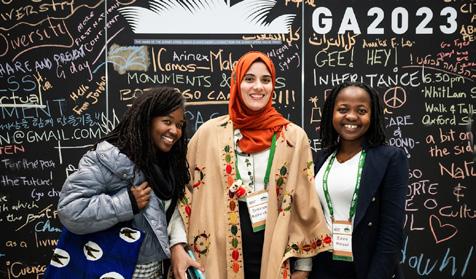
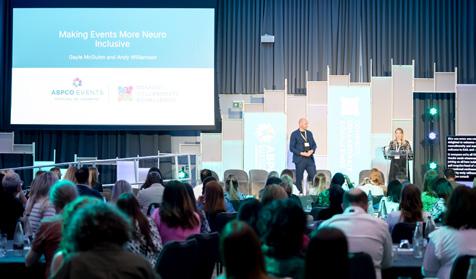
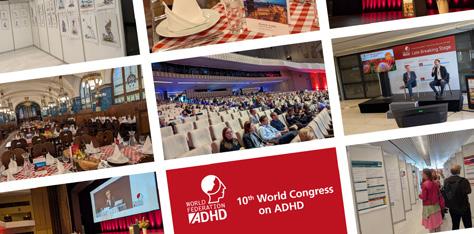

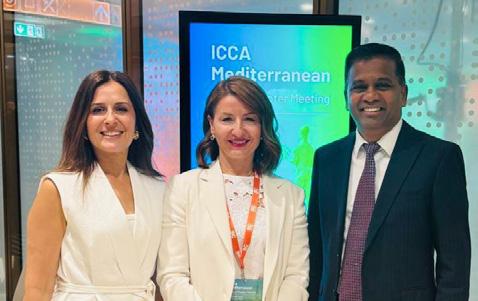

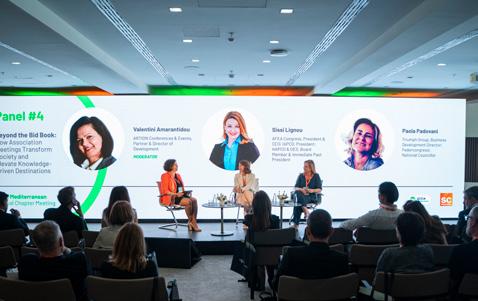
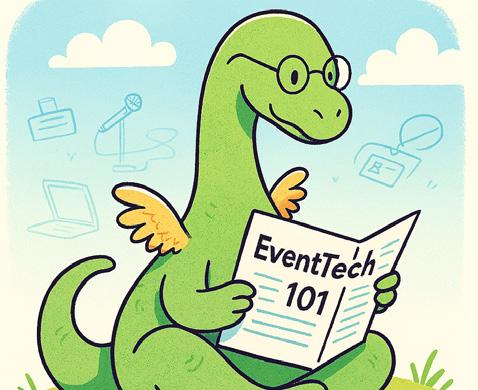
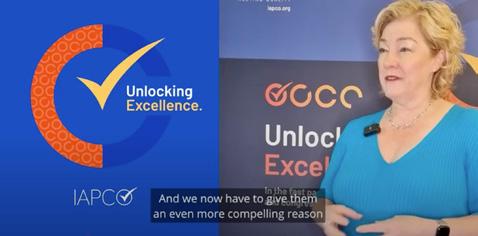
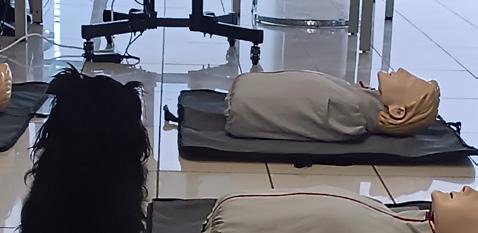
Stakeholder management is the process by which you organise, monitor and improve your relationships with your stakeholders. It involves systematically identifying stakeholders; analysing their needs and expectations; and planning and implementing various tasks to engage with them. How do PCOs manage their stakeholders? Is there a hierarchy to stakeholders? Regional Feature: Middle East & Africa
Deadline for all contributions: 31 August
Publishing 30 September
We welcome submissions from all our members from around the world. Editorial support is provided to non-English speakers.
Send your contributions for the next edition to pco@IAPCO.org
In the PCO world, intensity is a given. High-stakes deadlines, demanding stakeholders and the pressure of flawless delivery all come with the territory. But while stress may be part of the job, burnout doesn’t have to be.
At Erasmus S. A. we’ve made sustainability – not just for events, but for our people – a core operational value. Because resilient teams don’t happen by accident. They are designed, supported and protected by systems that prioritise human capacity alongside output.
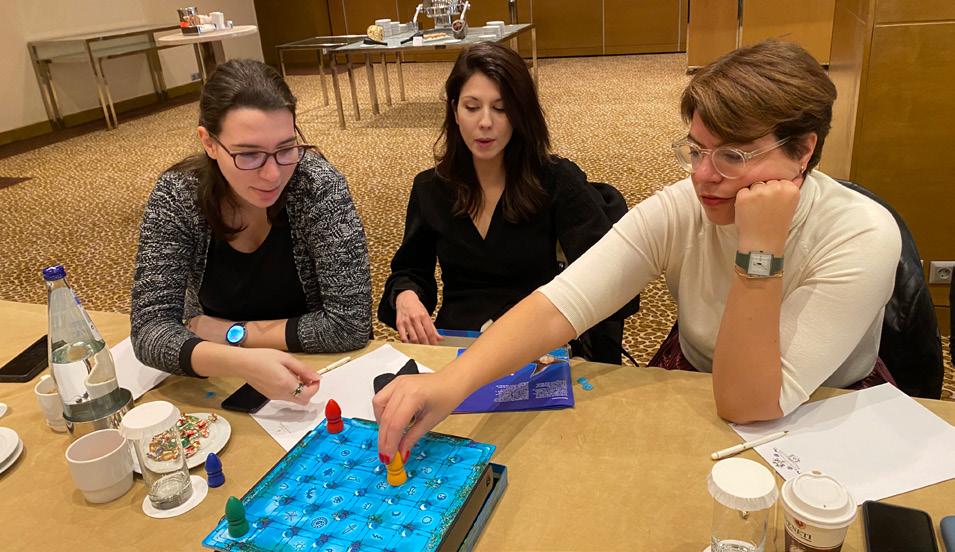
Reimagining team structure for sustainable performance and engagement
At the heart of successful project delivery lies a strong, balanced team. At Erasmus S. A., we’ve taken deliberate steps to reimagine how work is structured – placing team well-being, adaptability and long-term engagement at the core of our operational model. Here’s how:
1. Thoughtful project allocation: Projects are assigned with care, ensuring teams are neither overloaded nor underutilised, allowing for sustained high performance.
2. Holistic team composition: Team structures are designed not only around professional skill sets but also based on complementary personality traits, fostering stronger collaboration and synergy.
3. Designing timelines with people in mind: Every project kicks off with a realistic timeline – one that accounts for review periods, unexpected changes and human pace. We’ve shifted from treating time as infinite to recognising that energy is finite.
4. A ‘No Late Nights Before the Event’ policy: We’ve moved away from the industry norm of last-minute marathons. Our scheduling and preparation processes are designed to avoid late-night work on the eve of an event, promoting a healthier work rhythm.
5. The ‘No Back-to-Back’ meeting rule: Internal meetings – and when possible client meetings – are capped at forty-five minutes with mandatory fifteen-minute breaks between them. This small shift allows time for reflection, focus and rest – ensuring people feel heard, not hurried.
6. Flexible team interchangeability: Our model allows for seamless team adaptations and project reallocations when needed – enhancing agility and minimising disruptions.
7. Comprehensive internal systems: Strong internal tracking and reporting tools ensure role continuity and enable backstage team members to step in or rotate roles when required, without loss of context.
8. Consistent communication rhythms: Daily morning briefings and weekly company-wide meetings keep everyone aligned on project progress and help identify resourcing needs or team adjustments proactively.
9. Commitment to lifelong learning: We offer ongoing professional education opportunities, encouraging personal growth and keeping our teams equipped with the latest industry knowledge.
10. Annual company gathering: Once a year, all teams come together for a meeting that blends business review and goal-setting with leisure and team-building. It's a unique opportunity to reflect on achievements and challenges, align on future goals and connect on a human level. It’s the team’s time to shine, as they showcase their year in a fun and imaginative way!
11. Celebrating the everyday: From birthdays to carnival and Christmas, we regularly create small moments of celebration in the office – nurturing a sense of community and joy in the workplace.
12. Meaningful CSR engagement: Our approach to corporate social responsibility goes beyond financial donations. We involve team members in thoughtful, hands-on initiatives – such as purchasing and delivering essential goods for people in need – fostering a culture of empathy and purposeful action.
By embedding flexibility, communication and care into our team structures, we’re building not just successful events –but a workplace where people thrive.
Real feedback, real value
Our most effective policies didn’t come with a handbook –they came from listening. Once a year, during our companywide meeting, we collect stories from team members on which practice helped most. These testimonials help us improve!
‘For me, the no back-to-back rule made my whole week less fragmented. I can finish tasks with real focus.’
Christos M, project manager
‘Thanks to the “No Late Nights” policy, we go into every event well-prepared and well-rested. It’s a rare but powerful way to show trust and respect for the team.’
Kate K, project executive
‘When our timeline respects our pace, I can plan my life –not just my tasks. It’s a game changer.’
Evgenia G, team assistant
Sustainable capacity is a mindset
Workload isn’t just a number of projects on a dashboard, it’s how those projects feel. Our leadership team pays close attention to the invisible weight behind a to-do list: the mental effort, pace and space to breathe.
Rather than wait for signs of burnout, team leads regularly check in on three soft indicators:
Volume – How many priorities are in motion at once?
Intensity – How demanding is the pace? Are we juggling high-stakes stakeholders or tight turnarounds?
Recovery margin – Is there any pause between major milestones?
These aren’t tracked on a spreadsheet. They’re observed, felt and discussed in regular leadership huddles and one-on-one check-ins. When something feels off, our leadership acts –without waiting for red flags:
• We step in to lighten the load
• We reprioritise, sometimes on behalf of the team
• We redistribute work when needed
Conclusion: Putting teams first is our mission
In event management, stress is inevitable – but how we face it is a choice. At Erasmus, we've learned that the strongest teams aren’t just built on skills, but on trust, empathy and mutual support. When people feel seen, heard and valued as part of a team, they don’t just stay with the company –they stay committed to the mission.
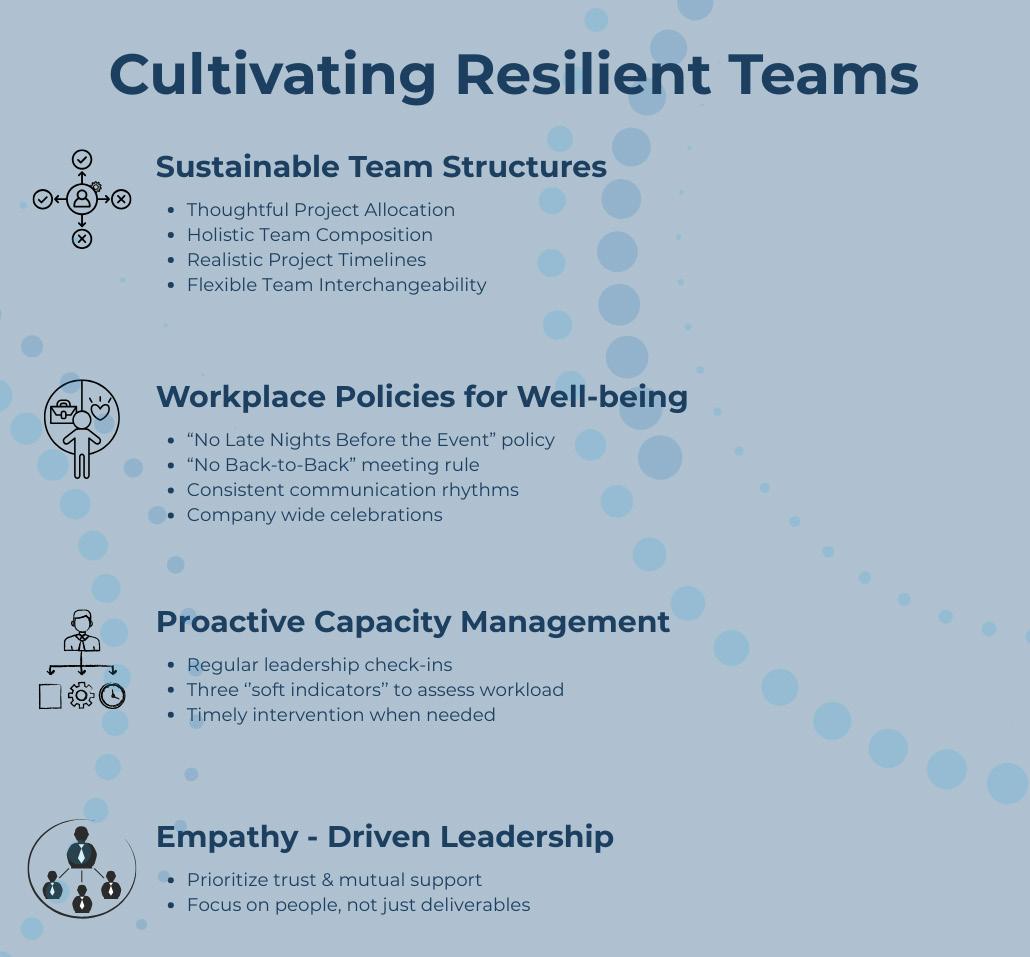

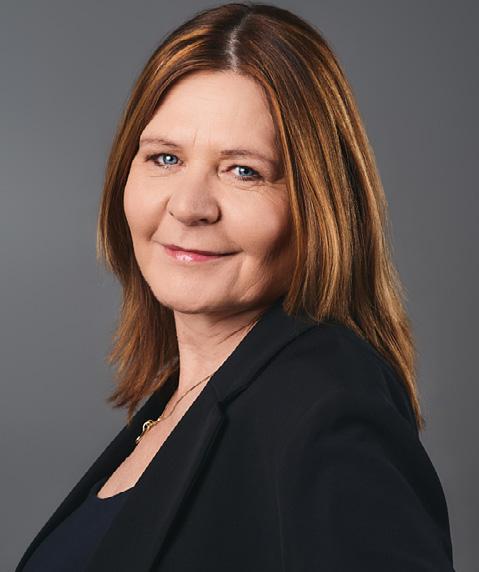
Over the past twenty-five years, I’ve worked with teams in every imaginable configuration – assembling them, leading them and, occasionally, learning from setbacks. One lesson stands out: transforming a team from merely ‘good’ to truly ‘great’ is never a matter of luck. It’s a strategic, intentional journey grounded in four essential pillars: people, purpose, communication and culture.
Let me share a real-life case that shows what this transformation looks like in action
Case Study: Delivering a 2,000-person pharma event in just three months.
Our challenge: Deliver the first international sales conference for a pharmaceutical client – 2,000 delegates, four days, in Barcelona, with just three months to plan. The client’s headquarters were in Prague, their consultant based in Geneva and participants flying in from across Eastern Europe – in the heat of August.
If that wasn’t complex enough:
• One month into planning, the budget was sharply reduced.
• Just four weeks before kick-off, we discovered that only fifteen per cent of delegates spoke English.
What followed was a masterclass in high-performing teamwork. Here's what made the difference.
1. Get the right people on board
Talent is essential – but alignment is what makes teams truly perform. We immediately built a cross-office project team involving three AIM locations:
• Vienna, for pharma expertise
• Prague, for client coordination
• Madrid, for local operations
We chose individuals who not only brought the right skills but also knew each other, trusted one another and shared a clear understanding of the project’s goals and constraints. We also brought in multilingual staff for on-site support –a key factor in ensuring inclusive, real-time communication with our Eastern European delegates.
Takeaway: The right people are not just qualified – they’re connected by mindset, chemistry and shared intent.
2. Build trust and respect early
We kicked off the project with a full-day, in-person team meeting:
• Every team member received an in-depth briefing.
• We aligned around the vision and individual responsibilities.
• We closed the day with an informal dinner – fostering relationships beyond the task list.
Takeaway: Trust isn’t built through emails. It's forged through shared experiences, human connection and mutual respect.
3. Design communication intentionally
With stakeholders spread across countries and time zones, communication had to be more than constant – it had to be structured:
• A guidebook outlining internal and client-facing communications
• Clearly defined roles and responsibilities
• Weekly coordination calls
• Regular client updates
• A detailed operations manual for onsite execution
Takeaway: Communication doesn’t happen automatically –it must be engineered. Structure turns complexity into clarity.
4. Align around passion, purpose and goals
From the outset, the objective was crystal clear: deliver a world-class conference in record time, with constrained resources. That urgency galvanised the team, creating unity and focus.
Everyone understood not just what we had to do – but why it mattered.
Takeaway: Purpose powers performance. When goals are clear and shared, teams rise to the occasion.
5. Motivate and Recognise
Faced with cuts and curveballs, the team didn’t falter. They adapted – renegotiating supplier contracts, revising programme formats and still delivering with excellence.
The result? A seamless, high-impact event. Participants felt welcomed and understood. The client was delighted – and became a long-term partner and advocate.
Takeaway: Recognition fuels resilience. When people feel seen and valued, they give their best – and then some.
Greatness is built, not demanded
Moving from ‘good’ to ‘great’ isn’t about pushing harder –it’s about creating an environment where people can thrive.
One where:
• The right people are chosen with care
• A shared purpose guides action
• Trust and respect set the tone
• Communication is intentional
• And recognition reinforces commitment
In the events industry – where no event succeeds without seamless teamwork – investing in team culture isn’t just smart. It’s strategic.
Lisa Stern, Country Manager AIM Austria

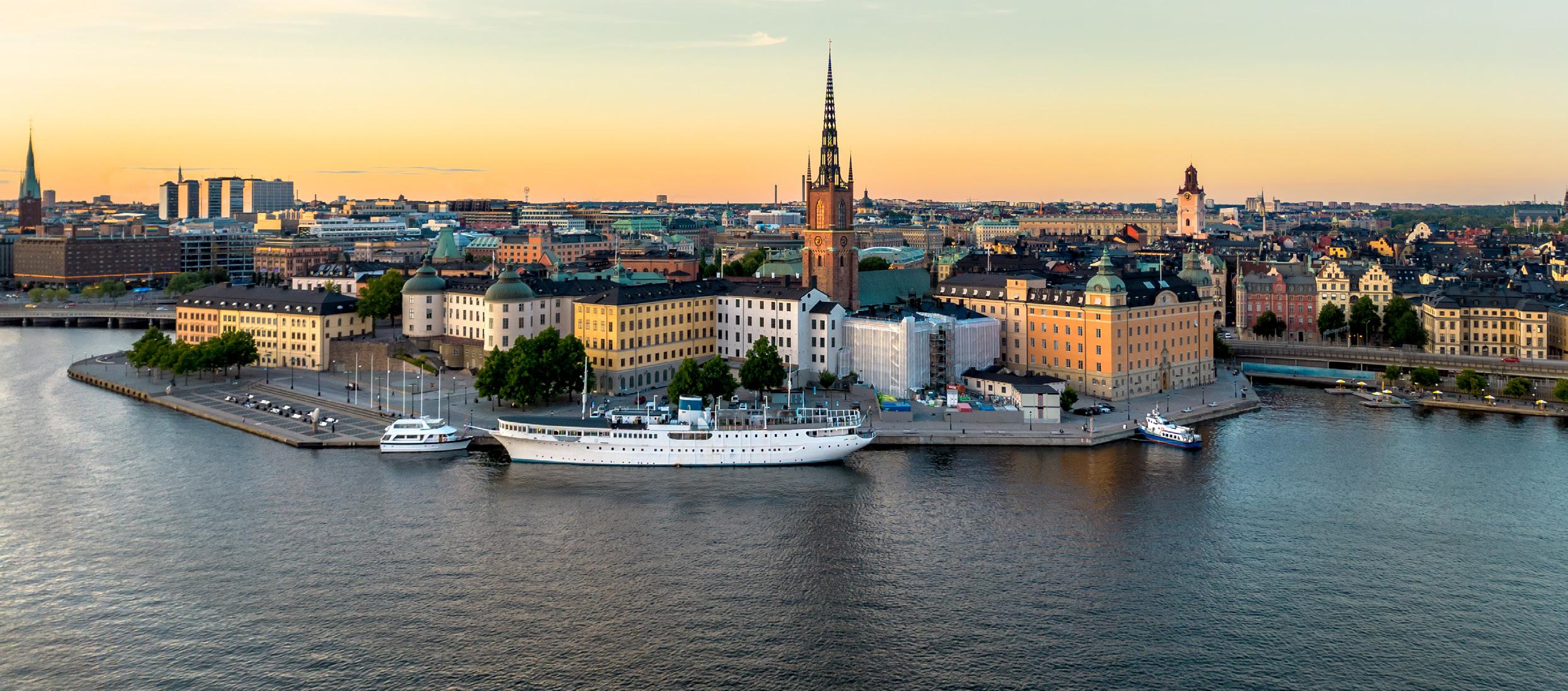


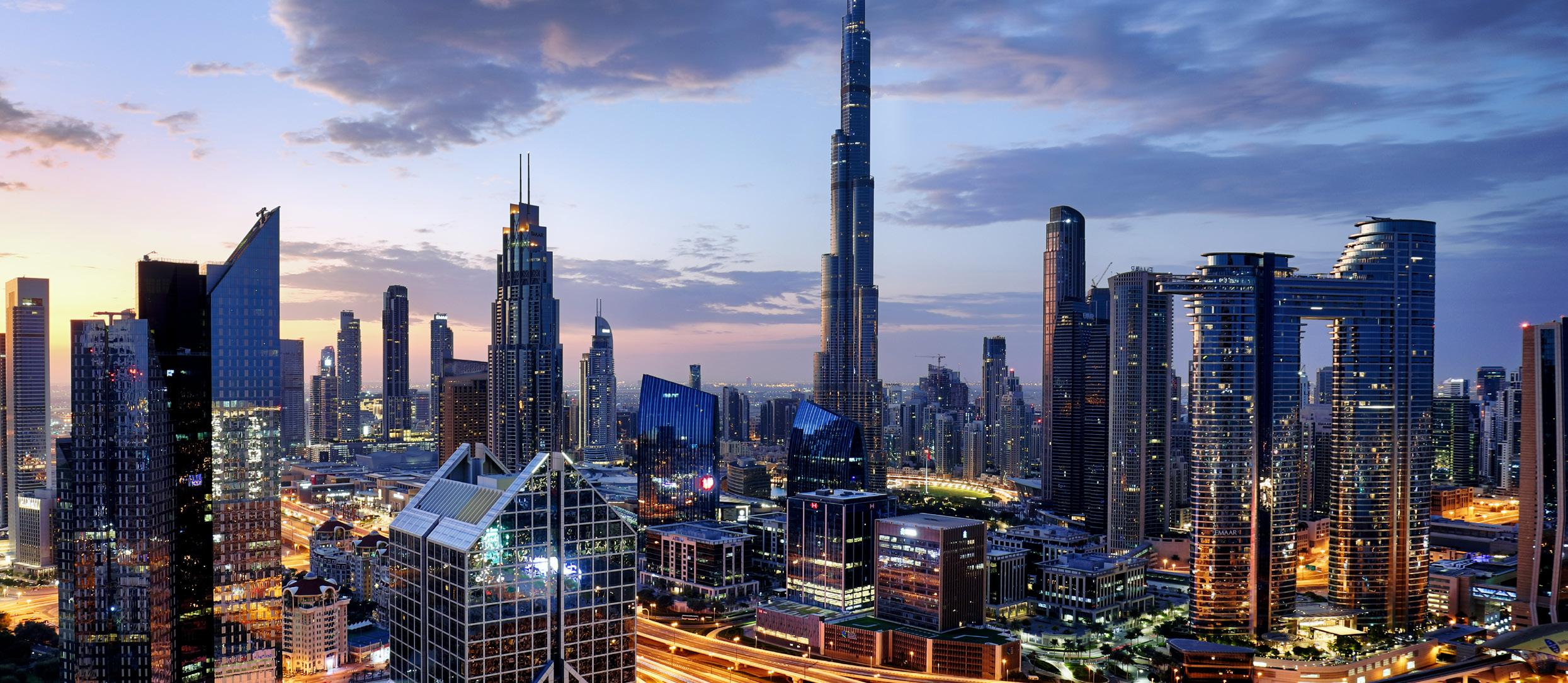


As Canada’s largest and most diverse city, Toronto is a hub of innovation and global connectivity—making it an ideal destination for major international congresses in the city. Built on a collaborative ecosystem, strong infrastructure and a knowledge-driven economy, Toronto blends global stature while being distinctly Canadian.
The city is one of the top destinations for international meeting attendance, reflecting more than just scale — it reflects a deep commitment to inclusivity and impact. Toronto embraces collaborative challenges, turning cultural and educational diversity into drivers of innovation. International associations are drawn to Toronto year after year to create a space where diverse voices convene and leave a meaningful legacy.
Toronto’s success in hosting global events lies in its collaborative model. Core to this is 'Team Toronto': Destination Toronto, the Metro Toronto Convention Centre (MTCC), and the Leaders Circle. This partnership supports international associations from the initial bidding through execution, ensuring every detail is aligned with strategic goals.
Destination Toronto’s sales team provides tailored, sector-specific expertise, particularly in life sciences, education, professional services and esports. Serving as a vital link to the city’s infrastructure and intellectual capital, the team helps deliver events that not only exceed expectations but are also globally relevant and deeply connected to the local context.
Metro Toronto Convention Centre
Located in the heart of downtown Toronto, the Metro Toronto Convention Centre offers convenient access to the city’s best. Steps from the CN Tower, Union Station, hotels, dining and entertainment, it places attendees in the centre of it all.
The venue features over 65,000 square metres of flexible event space, seventy-seven meeting rooms, two ballrooms, flexible exhibit halls, and a beautiful theatre. Its ideal location, combined with contemporary spaces and direct transit access, makes the MTCC a top choice for global events looking to make a lasting impression.
The Leaders Circle, Toronto’s ambassador programme, collaborates with academics, researchers and industry leaders to bring high-impact events. These ambassadors shape conference bids, infuse local expertise and connect events to Toronto’s key industries, such as life sciences, finance and techology.
The programme has generated approximately $435 million in economic impact in its first ten years. The recent Leaders Circle Recognition Celebration honored sixteen ambassadors bringing seven major future events expected to generate over $25 million in regional impact.
Toronto’s diversity is foundational: more than half of residents are born outside Canada, and over 180 languages are spoken. This multiculturalism enhances every aspect of the city’s conference infrastructure — from its collection of 36,000 hotel rooms to Toronto Pearson International Airport connecting the city to 180+ global destinations.
With its extensive resources and exceptional talent, Toronto stands out as a premier destination for hosting international congresses. The city’s collaborative Team Toronto partnership, seamless connectivity and deep-rooted diversity create an environment that delivers a welcoming and impactful experience to delegates from around the globe.
For more, visit destinationtoronto.com/internationalassociation-2025/

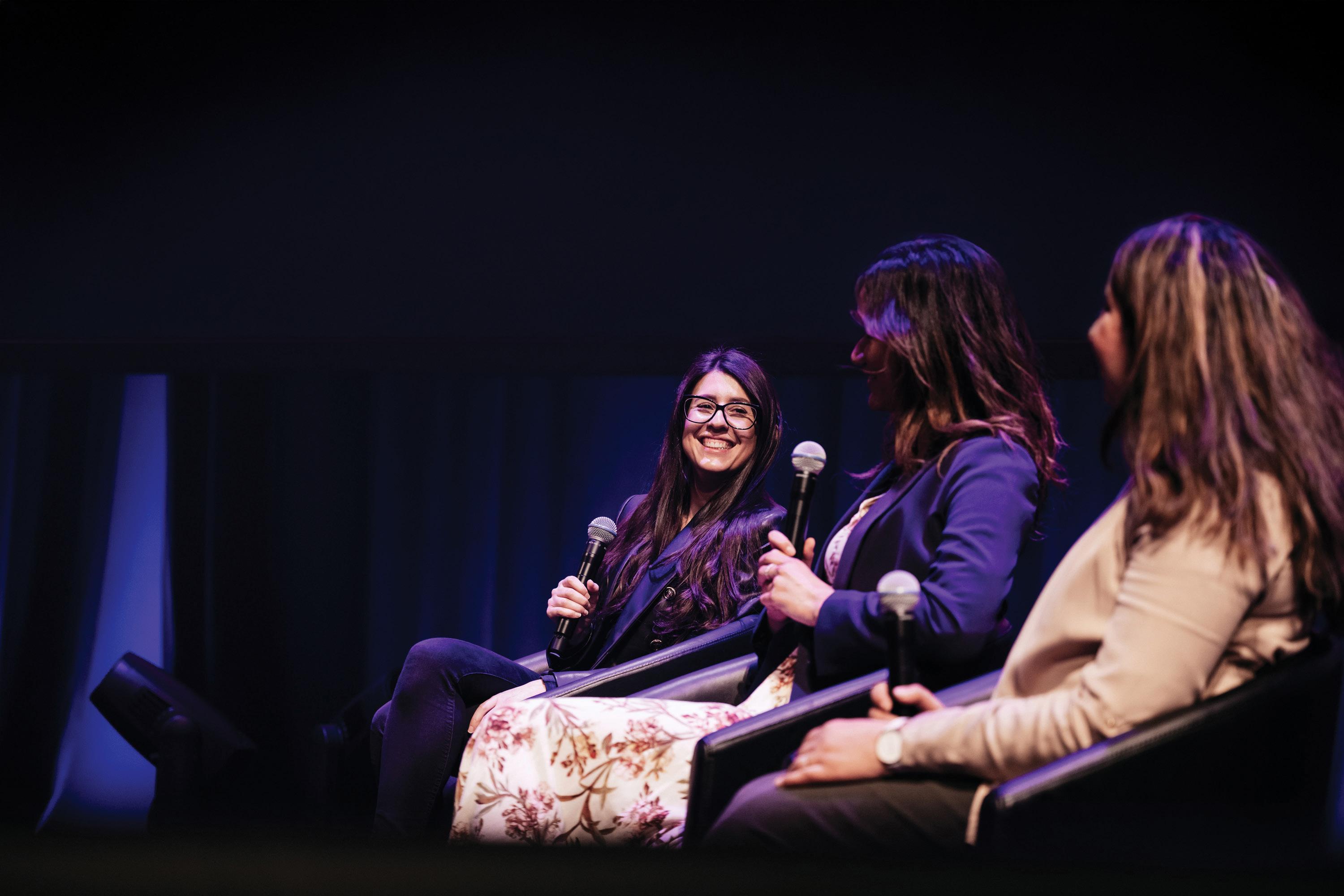
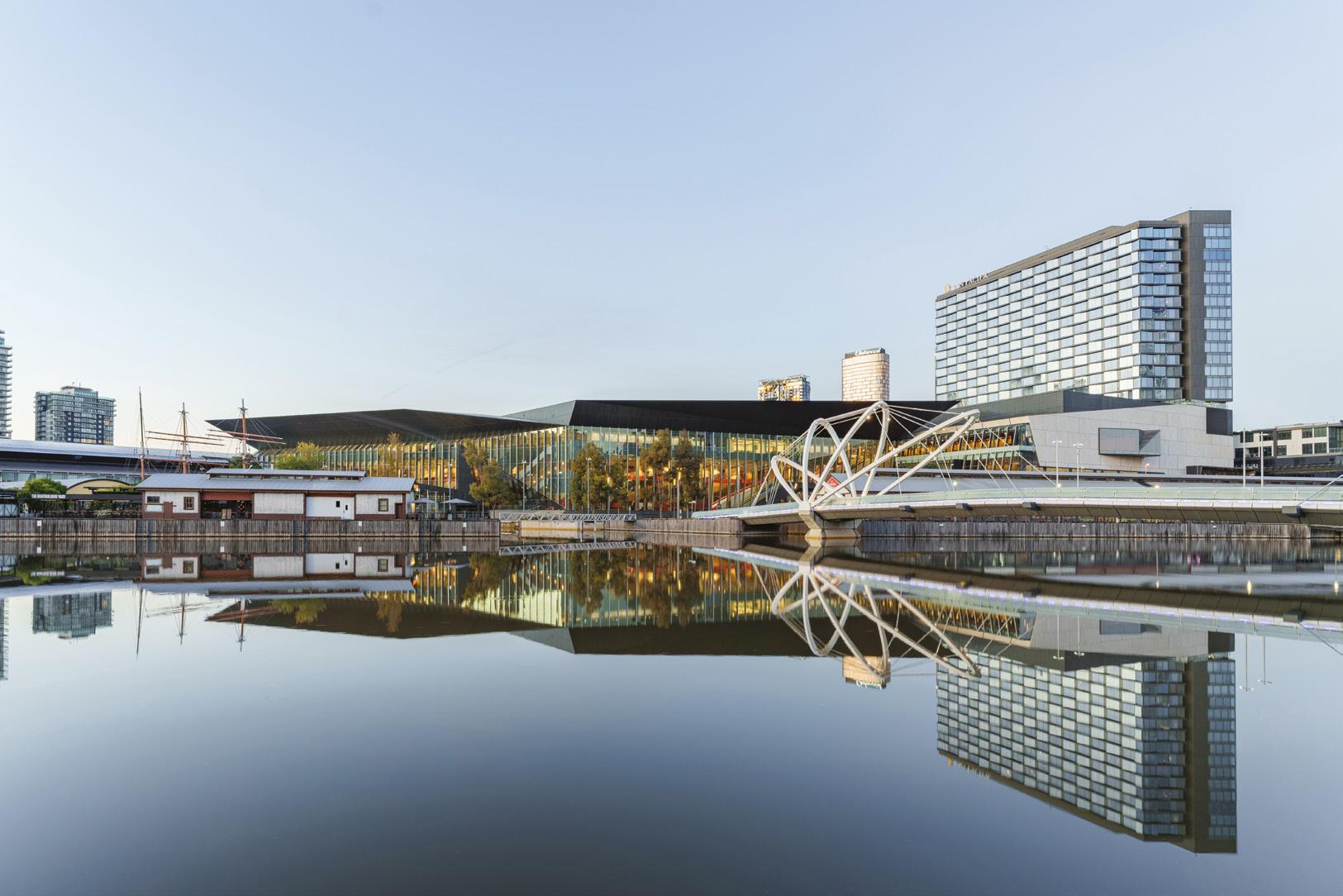
IAPCO global communitty remains active in both their commitment to sharing knowledge through our educational initiatives and in their commitment to advocacting for both our meetings and events industry and for the value of working with IAPCO members. To demonstrate this global reach, we are now featuring community members and activities in a different region each issue of the PCO.
This issue features perspective from our members, Ambassadors and partners from the Asia-Pacific (APAC) region.
Despite global uncertainties and a slight dip in the overall number of international meetings, the AsiaPacific region is seeing steady growth in its meetings industry. Interestingly, while there may be fewer events, the average number of delegates per meeting is increasing. This shift points to more impactful gatherings, solidifying Asia Pacific’s role as a key destination for high-value international events.
With ongoing global challenges such as geopolitical tensions and tariff changes, more international organisations are turning their focus to Asia Pacific as a stable and strategic location for business events.
Taiwan is a standout example. As a global leader in technology, particularly in semiconductors, electronics and ICT, Taiwan's thriving tech industry is driving demand for tech-related conferences and business events. The country’s strong ecosystem makes it an ideal destination for global discussions around technologies.
Sustainability is another key focus in the region’s meetings industry. As companies ramp up their environmental, social and governance (ESG) efforts and commit to net-zero goals, sustainable practices are becoming essential. Across Asia Pacific, more events are being designed with sustainability and attendee well-being in mind.
From eco-friendly venues and carbon-conscious travel options to menus made with locally sourced ingredients, today’s event and conference planners are going green. In Taiwan, the MEET TAIWAN initiative has been promoting green meetings since 2013. This includes support for industry professionals in adopting sustainable practices and earning international certifications. As of July this year, Taipei is also enforcing new eco-policies, such as hotels in Taiwan will no longer be allowed to provide free single-use toiletries.
As the Asia-Pacific region continues to innovate, prioritise sustainability and attract global attention, the international meetings industry is set for meaningful growth. With more high-impact events and greener practices, the region is embracing change and playing an increasingly important role in the evolution of global meetings and events. Expect to see Asia Pacific shine as a vibrant, responsible and inspiring hub for global meetings and events.
Chris Oh
Managing Director, Korea, MCI Group

Chris has worked as Managing Director of MCI Korea in Seoul, South Korea for more than 15 years. During that time, he has provided the clients with various solutions by convention & conference management, corporates meetings & events, and association management & consulting.
He was awarded the Best International Conference Organizer by the Seoul Metropolitan Government in 2024, recognizing the success of MCI Korea’s longstanding strategy of focusing on International Conferences.
Also, he had provided AMC services for ASAE in Korea for a decade, which contributed to the establishment of KSAE in the country.
Before he joined MCI, he primarily worked in sales and marketing at Korean air and later serving as Marketing Director for the Americas. His last position was Vice President, Passenger Business.
www.wearemci.com chris.oh@wearemci.com
From the Pacific Rim to the centre of our global network, APAC leaders are redefining what’s possible in business events. IAPCO is proud to showcase these voices — celebrating the innovation, resilience and forward-thinking spirit that characterise our community across the wider Asia-Pacific region.
The videos below highlight APAC’s role in #UnlockingExcellence and reaffirm IAPCO’s commitment to nurturing talent and opportunity on a truly global stage.
Press play to see how the APAC perspective is shaping the future of meetings worldwide. Hear more from the IAPCO community in the APAC region here
See more about our #UnlockingAdvocacy initiatives here
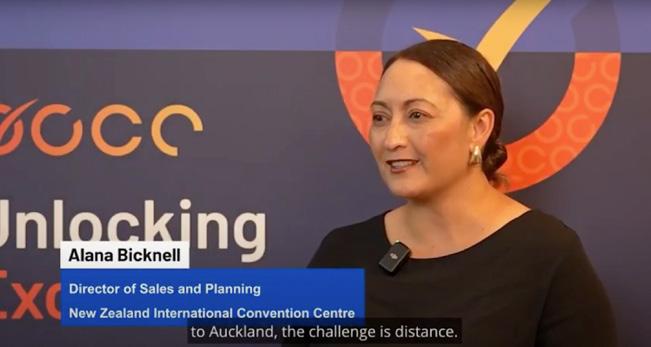

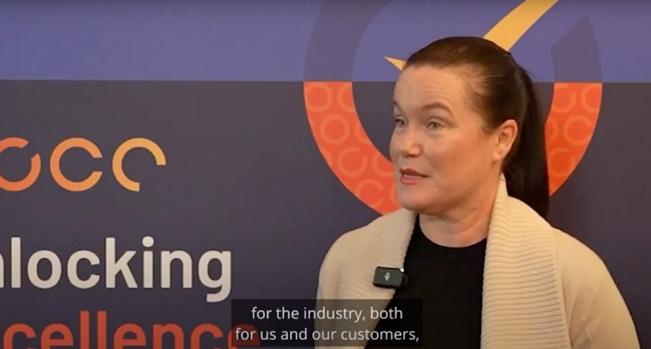
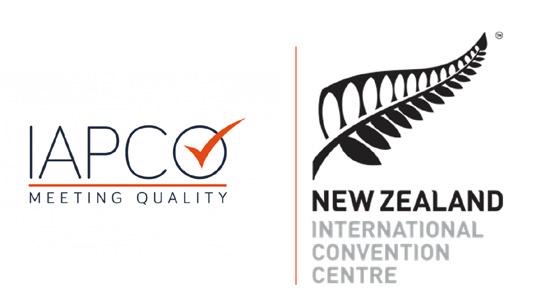
Do you want to further your career in the meetings industry?
The Emerging Leaders Programme, now in its second year, is a unique learning opportunity for members who want to develop their leadership skills and capabilities. In partnership with New Zealand International Convention Centre (NZICC), this programme is delivered through a series of online education workshops organised by the IAPCO Training Academy.
Four 1.25-hour seminars will be held fortnightly during August and September. The start time is 18:00 NZST for each seminar. The exact dates will be confirmed following the application process. All seminars will be recorded so even if participants can’t make all seminars, they can be viewed afterwards. Topics in 2025 include:
• Defining your leadership style: Explore the evolving role of leadership in the events industry and identify your unique leadership approach.
• Leading through change and complexity: Build the skills and mindset needed to lead confidently in changing environments.
• Influencing through leadership: Develop the confidence to initiate change, generate value, and influence others.
• Leading with integrity and purpose: Foster a leadership mindset grounded in resilience, ethics, and long-term impact.
Following the programme, attendees can apply for this coveted scholarship, named after former IAPCO President, Jan Tonkin, to attend IAPCO’s Annual Meeting and General Assembly in 2026 alongside senior leaders within the global business events community. The scholarship covers return economy travel, registration and accommodation.
Participants need to be employed by an IAPCO member in the Asia Pacific region and have at least 2–3 years’ experience in the business events industry. The programme is designed for emerging leaders in your company, and member companies can nominate multiple people.
Applications are now open and can be submitted either by an IAPCO employee or employer. The closing date for applications is 7 August 2025.
See more about the Programme here.
Centre.
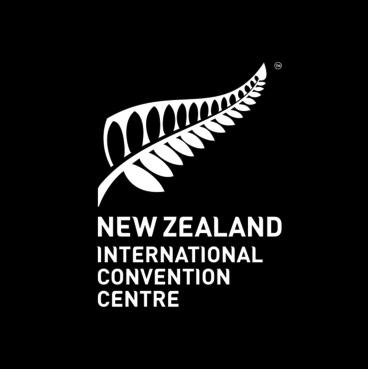
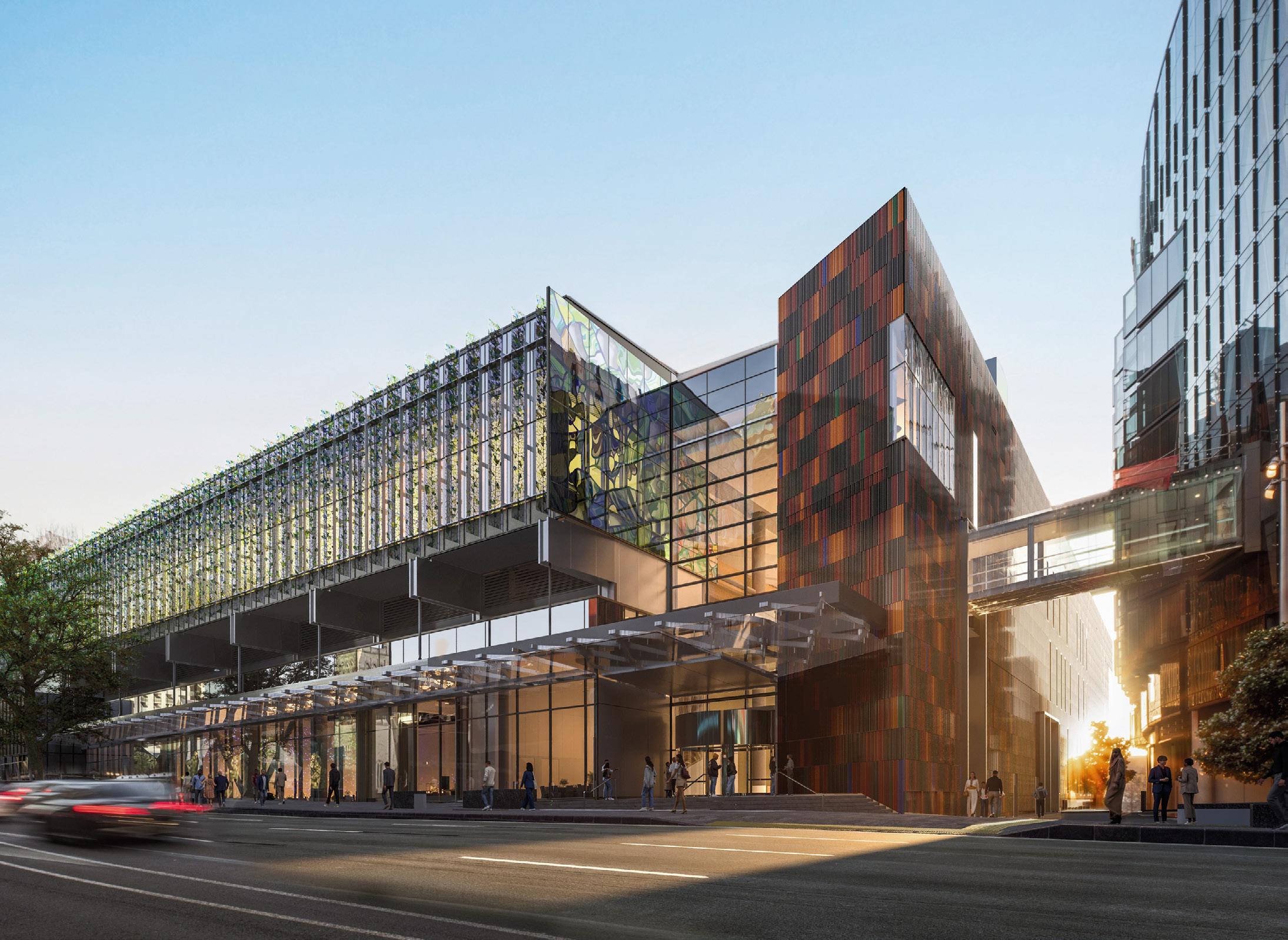
The New Zealand International Convention Centre (NZICC) is set to redefine the event landscape in New Zealand.
Located in Auckland’s CBD, New Zealand’s largest and most versatile convention, exhibition, and entertainment venue offers unparalleled flexibility making it perfect for any event; conferences for up 4,500 people, dinners for over 3,000 guests, or up to 400 exhibition booths.

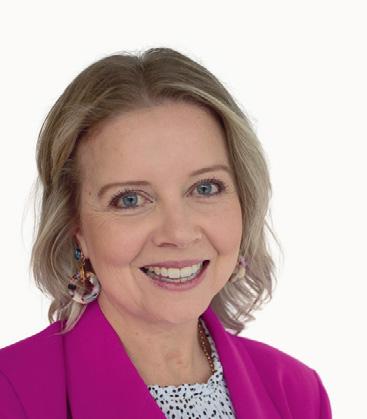
Contact the team at kiaora@nzicc.co.nz or visit nzicc.co.nz to learn more.

Supported by
Behind each successful event is a solid and dependable partnership that seeks to deliver excellence.
This IAPCO Driving Excellence Collaboration Award recognises outstanding collaboration in any form, within and across industries, and celebrates partnerships that bring excellence to the meetings industry.
The IAPCO Collaboration Award highlights the significance of effective partnerships, celebrating the achievements of organisations working together to reach a common goal.
Do you know someone who embodies the qualities mentioned above? Maybe it’s a colleague, client or supplier who has consistently delivered remarkable results through effective collaboration? If so, we encourage you to nominate them for this coveted award.
Nominations for the 2025 Collaboration Awards are open from 17 July to 1 October 2025. Submit your nomination here. View Full Details & Criteria here.
A snap from Alexy
Gargani, AOS
– Next Gen Committee Member
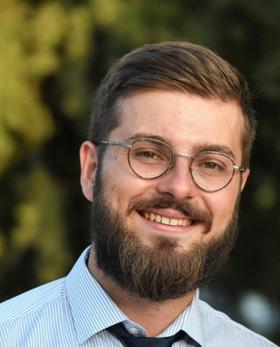
In today’s meeting industry, stakeholder management goes far beyond coordination — it’s about cultivating long-term, trust-based relationships with everyone involved in the success of an event. From clients and committees to sponsors, suppliers, and internal teams, stakeholder engagement is a strategic and cultural imperative.
As a family business, we often find natural alignment with other family-run organizations. These relationships tend to create strong connections at the leadership level, which fluidify collaboration between operational teams. When top management trusts each other, it sets a positive tone for the entire project team — everyone is more engaged, responsive, and solution-oriented.
Beyond that, we’re seeing a clear generational shift in how partnerships are evaluated. The next generation of professionals places high value on operational smoothness, working culture, and shared values — especially around sustainability. For our teams, these factors are now just as important as price or technical excellence when selecting stakeholders.
The classic idea that “the client is king” is also evolving. While client satisfaction remains a core objective, the reality is: you can’t deliver a great event if you neglect the wellbeing of your employees, freelancers, and subcontractors. Stakeholder management must now include caring for your internal ecosystem. Applying pressure for results without empathy or balance might work once, but it’s not sustainable in the long run. To build a resilient delivery model, you need to invest in people — not just processes.
At our agency, we consider stakeholders as extensions of our team. We choose them wisely, treat them as equals, and build a culture of collaboration. Even when we have to request adjustments on behalf of our clients, we do so with mutual respect. The key is dynamic alignment: understanding who needs attention at each phase of the project and making space for open, proactive communication.
Ultimately, stakeholder management in our field isn’t just about delivering events — it’s about cultivating ecosystems. When everyone is aligned, respected, and supported, we don’t just produce meetings — we create shared success stories.



The International Social Housing Festival (ISHF), hosted in Dublin in June 2025, offered a unique opportunity for Ireland to lead in the global dialogue on social housing and drive meaningful change in the housing sector.
The ISHF is an initiative of Housing Europe, the European Federation of Public, Cooperative, and Social Housing. In 2025, ISHF was hosted by Irish Council for Social Housing (ICSH) and supported by the Department of Housing, Local Government and Heritage (DHLGH), Housing Europe and Co-operative Housing Ireland (CHI).
Following a successful bid by the Irish Council for Social Housing (ICSH), Dublin was selected to host the International Social Housing Festival. Fáilte Ireland, the National Tourism Development Authority and Dublin Convention Bureau supported the bid by providing practical and financial support.
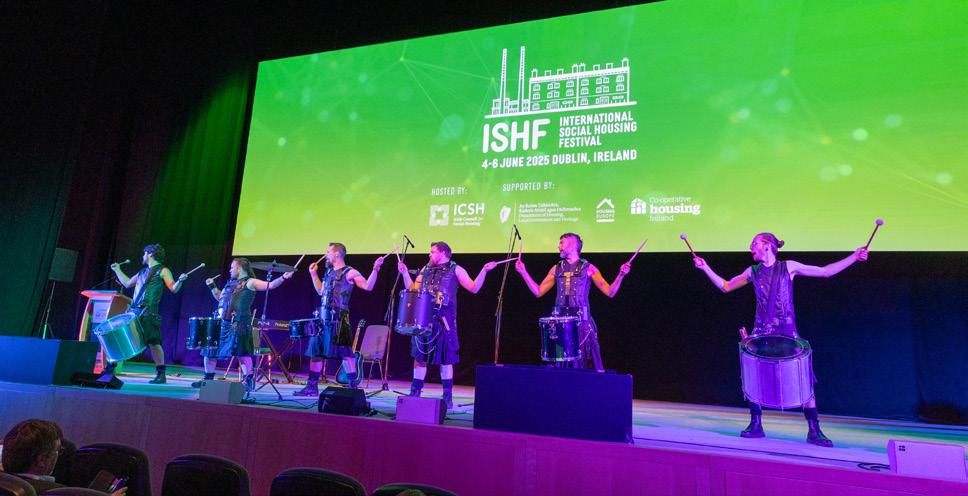
Recognising the societal and long-term benefits that international conferences can have on a host destination, Fáilte Ireland partnered with global experts, #Meet4Impact, and embarked on an intentional impact journey with the Irish Council for Social Housing, Conference Partners International and Housing Europe to manage and measure the impact of hosting this event on the local community, policy and society.
This intentional impact project is the first of its kind in Ireland and aligns with Ireland’s recently launched Business Events Strategy 2030, which aims to support government policies and objectives that drive robust economic, social and environmental outcomes.
As a central focus of the impact project, the ICSH sought to incorporate the voices of tenants in Ireland into ISHF 2025,
by embracing the concept of 'not about us without us.' To align with the festival's theme of 'Storytelling', the ICSH developed an oral history exhibition titled 'From House to Home,' which focused on stories from tenants living in social housing in Dublin, Ireland.
Positioned at the entrance hall of the Convention Centre
Dublin, the exhibition became a focal point of the festival and delegates were invited to ‘listen and look’ at the exhibition, which featured portraits and oral histories of people who have lived or are currently living in social housing.
To sustain the impact created at The ISHF Dublin 2025, an 'oral history toolkit' was developed to assist with the collection of future oral histories. The toolkit was launched at the Dublin festival, and delegates were encouraged to utilise it within their own organisations.
Housing Europe aims to build on the success of the oral history project by creating a 'living library' and aims to integrate storytelling into future iterations of the festival, creating a lasting legacy.
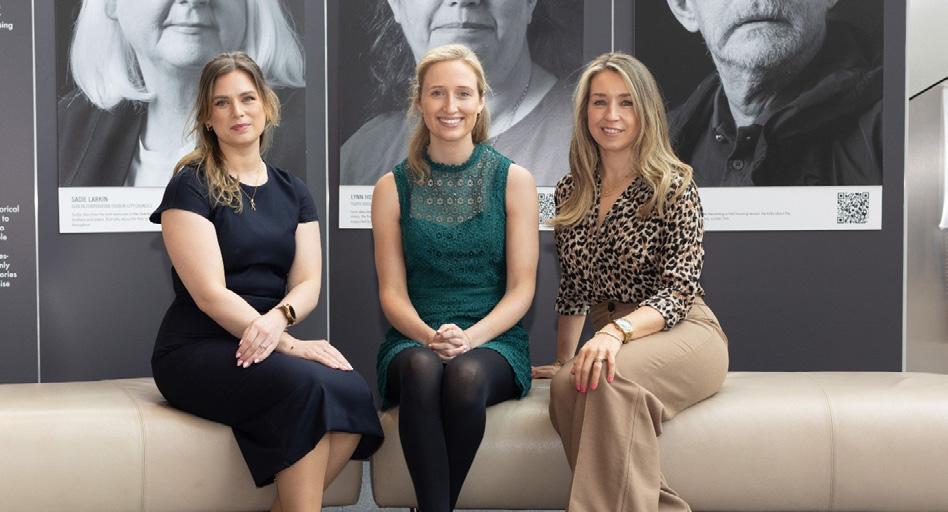
The International Social Housing Festival 2025 provided a platform to showcase Dublin's social housing projects and initiatives to an international audience. Hosting the festival brought together experts, policymakers, and practitioners from around the world, fostering collaboration and the exchange of innovative ideas and best practices.
The ISHF Dublin 2025 created significant impact for Dublin: • Social Impact: The festival actively involved the local community, including tenants, service users, children's choirs and advocacy groups. The storytelling project engaged tenants, allowing them to share their experiences and contribute to the festival's content and insights. This

initiative sought to create impact by raising awareness of tenant experiences, fostering improvement ideas and influencing housing policies. At European level, a living library of oral histories and an oral history toolkit will be shared with future ISHF host cities to shape discussions across Housing Europe member countries and beyond.
• Economic Impact: The influx of over 2,500 delegates from sixty countries generated an approximate economic impact of €3m for Dublin, benefiting local businesses, venues, hotels, restaurants and services.
• Environmental Impact: The International Social Housing Festival was an early adopter of Fáilte Ireland’s Business Events Carbon Calculator, helping to measure and manage the environmental impact of the event for future iterations of the International Social Housing Festival.
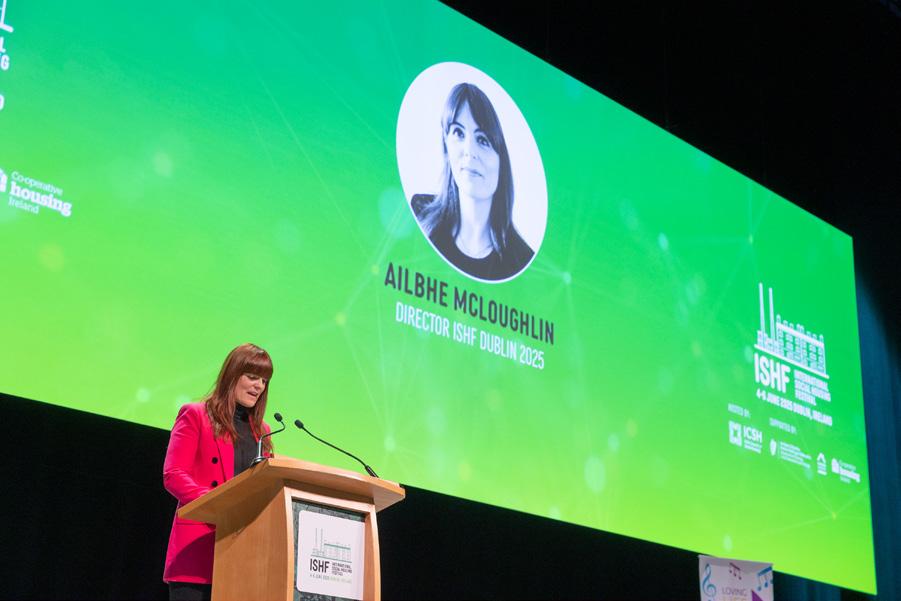
The International Social Housing Festival (ISHF) 2025 in Dublin was a pivotal event for advancing global dialogue and driving meaningful change on social and affordable housing design, delivery, management and finance. By uniting diverse stakeholders, the festival facilitated the exchange of innovative ideas and best practices, emphasising inclusive and community-centred approaches.
The collaboration between Fáilte Ireland, Conference Partners International, and the Irish Council for Social Housing created positive social impact that will benefit Housing Europe in future festivals. The impact project, the first of its kind in Ireland, provided a structured approach to measuring and enhancing the event's social impact, serving as a model for future events across Europe.

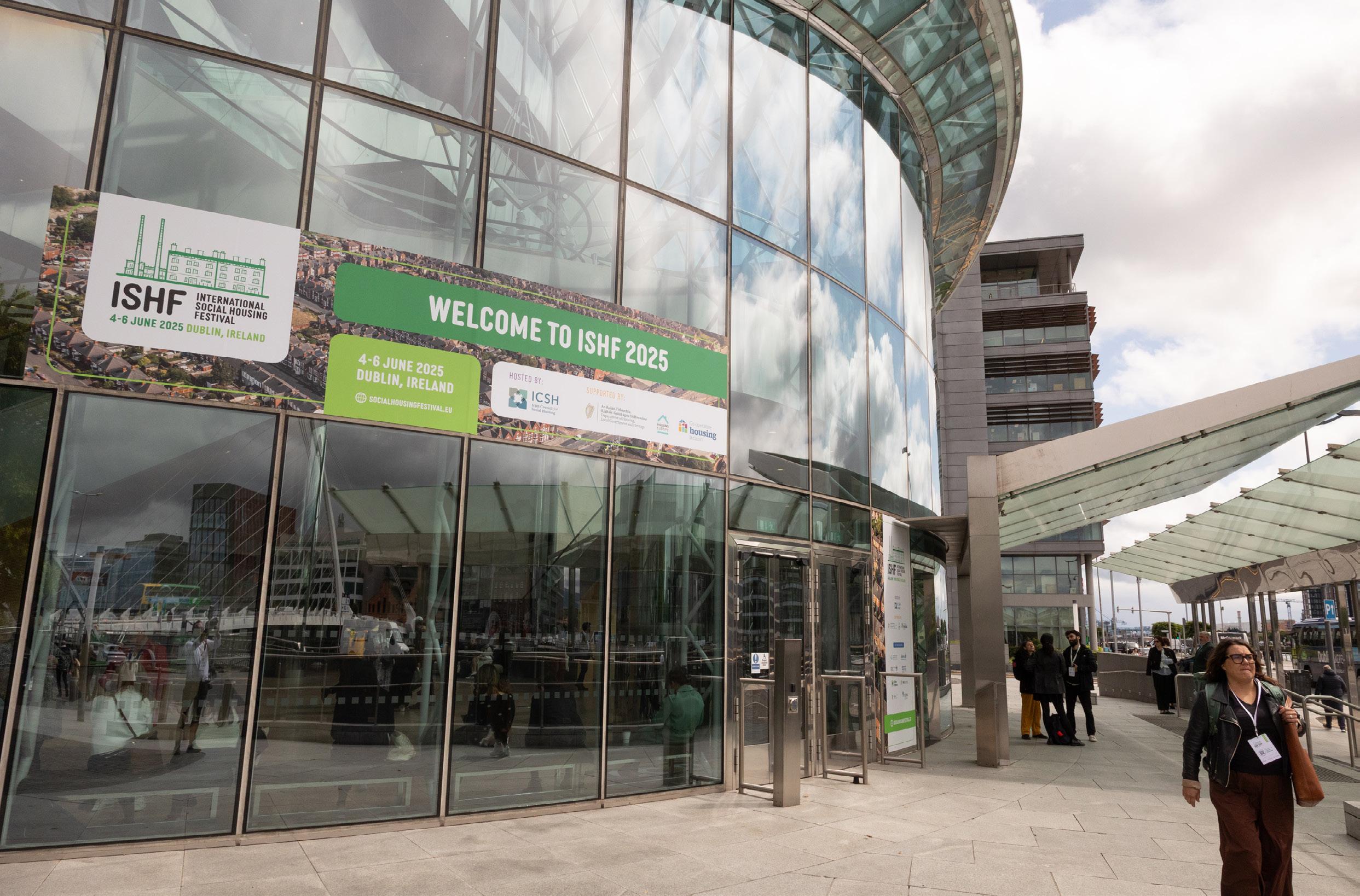
When people talk about hosting a conference, they often imagine a single grand hall, a speaker at a lectern and an audience dutifully listening. But when you’re staging CardioAlex.25 — the leading cardiovascular conference in Africa and the Middle East — you’re not just hosting a conference. You’re choreographing a symphony of science, logistics, technology and human connection. And to make it work—not just well, but exceptionally — it takes more than a good team. It takes a great one!
For over two decades, ICOM Group has proudly partnered with the CVREP Foundation, the founder of CardioAlex Conference, to deliver this world-class event. This longstanding collaboration reflects a shared commitment to advancing cardiovascular knowledge and patient outcomes across the region and beyond.

CardioAlex.25 that took place from 17—20 June. 2025 — is more than an event. It’s a mission. Heart disease remains the leading cause of death worldwide, and CardioAlex is dedicated to uniting global knowledge with local expertise to advance cardiovascular treatment and patient care. That mission drives everything we do, and this year’s conference was our most ambitious yet:
• 6,567 total attendees (physical and virtual), all with diverse backgrounds — from eminent professors, junior residents to senior consultants, biomedical engineers to nurses.
• 136 international speakers from 28 countries, ensuring true global representation.
• 280 scientific hours, 25 hands-on workshops, 6 ‘Live in a Box’ sessions, and 8 live transmission cases that connected continents in real time.
• 15 key international and regional partners, and 12 societies joining forces in joint sessions.
• 26 Continuing Medical Education Credits (EBACaccredited), supporting lifelong learning in cardiology.
Delivering this experience demands more than professional know-how. It requires a deeply aligned team culture that can move from good intentions to great execution.
As event professionals, we know that no single person can 'pull off' an event of this scale. But what makes a team move beyond basic coordination into true synergy? At ICOM Group, delivering CardioAlex.25 has taught us the essential ingredients:
• Shared purpose. Every department — from High Management to Business Development, Operation, Commercial and Partnership, Medical Department, Branding and Production, Media Production and Web
Development — was united by the belief that team work knows no borders.
• Respect for expertise. With so many moving parts — from complex medical content to technology integration — each team brought their unique strengths, and all were respected equally.
• Transparency and communication. Starting to plan an event for over a year meant challenges arose. Clear communication turned obstacles into opportunities.
• Trust. Team members knew they could rely on each other, building a culture where everyone felt safe to share ideas, raise concerns and take initiative without fear.
• Delegation. Leadership empowered every team to own their part of the mission, avoiding micromanagement and enabling faster, smarter decisions on the ground.
• Empowered leadership. Rather than controlling every detail, leaders focused on setting clear goals and supporting their teams to deliver exceptional results.
• Adaptability. In the face of logistical hurdles or last-minute programme changes, the team remained solution-focused.
We also know what hinders teamwork: siloed thinking, unclear goals and fear of failure. To address these challenges, we focused on breaking down barriers between departments, aligning everyone around a clear mission, and creating a safe environment where ideas — and even mistakes — could lead to better outcomes. That culture of trust and collaboration is what took us from being a good team to being a great one.
What truly set CardioAlex.25 apart was the quality and inclusiveness of its scientific programme. Our team collaborated closely with the scientific committee to deliver the most engaging, up-to-date content for cardiovascular professionals.
We didn’t just focus on established specialists — we made sure to nurture the next generation. Career development tracks were carefully designed to support young physicians, with a special focus on empowering both male and female cardiologists with leadership skills, research know-how and practical training to excel in their careers.
ICOM teams also worked tirelessly to communicate and coordinate with international and regional stakeholders, ensuring meaningful participation, collaborative sessions and strong, sustainable partnerships.
Ahmed El Chal, Chairman of ICOM Group, summed it up best:
'CardioAlex is true evidence to what happens when people rally behind a purpose bigger than themselves. As leaders, our role is to build the environment where collaboration thrives. It’s not about giving orders — it’s about enabling people to excel'.
Ahmed’s leadership philosophy is embedded throughout ICOM Group’s approach. High-level strategy was not confined to the boardroom but was shared with every department, ensuring alignment on goals and values from day one.
Salma Darwiche, Chief of the Business Development Division, describes the process this way:
'Our partnerships with international or regional medical associations were not just about signing agreements. They were about trust, shared vision and co-creation. Whether it was coordinating with fifteen international partners or aligning with twelve medical societies, we approached every negotiation with honesty and openness'
This approach ensured that partnerships weren’t transactional but transformational, enriching the programme for all attendees.
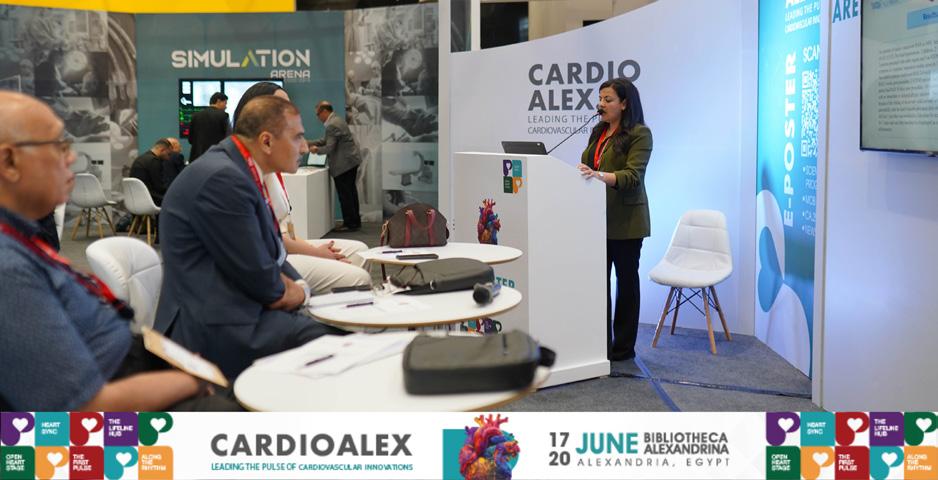
Moataz Kamal and Dalia El Tohamy, Commercial and Partnership Directors at ICOM Group, shared their approach:
'We didn’t just offer companies a sponsorship package—we invited them to be part of a shared mission. From Egypt to the Gulf, and Africa, we approached partners with a clear message: CardioAlex is where you belong if you want to advance cardiovascular care. That meant understanding their goals, building trust and creating tailored opportunities that felt personal and impactful.'
Their work ensured that companies from all destinations could find meaningful ways to participate, strengthening the ecosystem that supports cardiovascular innovation and education.
On the ground, the Operations team faced the monumental task of translating plans into reality. Sandra Wasfy, Project Manager in the Operations Department, reflected:
'We were managing scientific sessions in parallel, complex live transmissions and a high-energy exhibition hall — all while keeping thousands of participants engaged. It’s about planning every detail but also being ready to improvise. No plan survives the first hour of an event without adaptation!'.
Sandra’s words highlight a truth every event professional knows: while strategy is vital, real success lies in flawless execution, adaptability and a team that can stay calm under pressure.
We also recognised that true excellence isn’t just about what happens inside the conference halls. It’s about our responsibility to the planet. CardioAlex.25 implemented robust sustainability practices, including:
• A Going Green approach, prioritising reusable and recyclable materials.
• Carbon emission reduction strategies, including optimised logistics and travel planning.
• Waste management initiatives for responsible disposal and recycling during the event.
• Choosing a sustainable venue: the iconic Bibliotheca Alexandrina in Alexandria, Egypt, known for its energyefficient design and commitment to cultural heritage.
We believe that conferences can lead the way in modelling sustainability for the entire events industry.
Because we know that connection happens outside meeting rooms, too, ICOM Group also organised tailored touristic experiences for our international and regional attendees. Our dedicated Destination Management team carefully built an engaging itinerary designed to showcase Egypt’s rich culture and history — from exploring Alexandria’s Mediterranean charm to visiting Cairo’s most iconic attractions. These immersive tours let our guests truly feel the spirit of Egypt, deepening bonds, building friendships and creating unforgettable memories.
For over a year, ICOM departments collaborated tirelessly. High Management Leadership Strategies provided the vision. Business Development secured transformative partnerships. Operation ensured seamless delivery. Commercial and Partnership built stakeholder alignment. The Medical Department curated the rich scientific programme. Branding and Production and Media Production delivered compelling event storytelling and design. Web Development created intuitive, user-friendly platforms to support the hybrid experience.
This isn’t just teamwork — it’s integrated collaboration, where silos break down and expertise fuses into a single mission. That’s what takes a team from good to great.
But our mission doesn’t end here. As we look to the future, we’re preparing for an even greater milestone: CardioAlex’s Silver Jubilee next year. Celebrating twenty five years of advancing cardiovascular education will be more than an anniversary — it will be a renewed promise to innovate, connect and serve the medical community at an even higher level. Delivering on that promise will require even more team cohesiveness, creativity and shared purpose. Because going from good to great is not a destination. It’s a journey we take together, year after year.
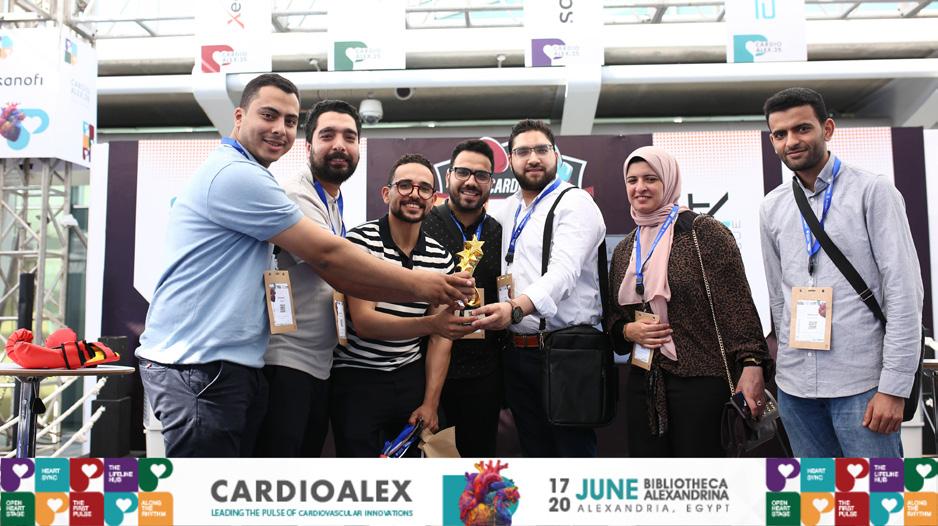
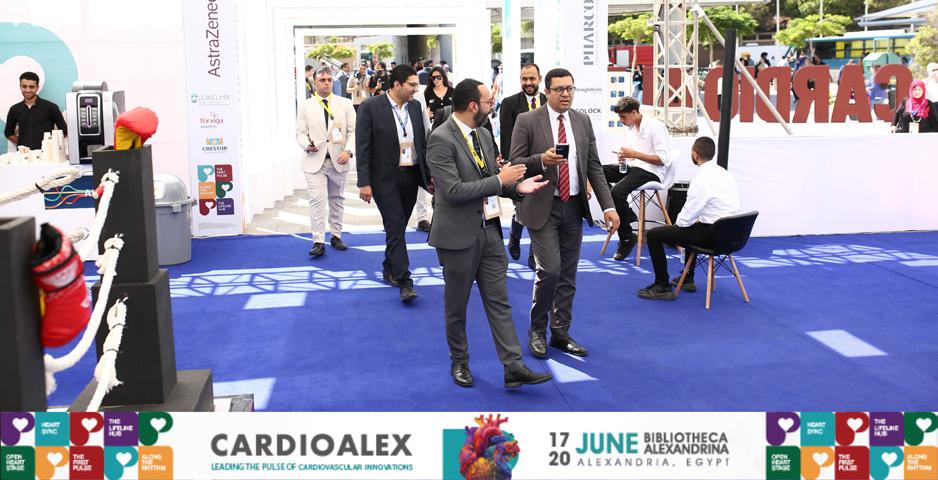
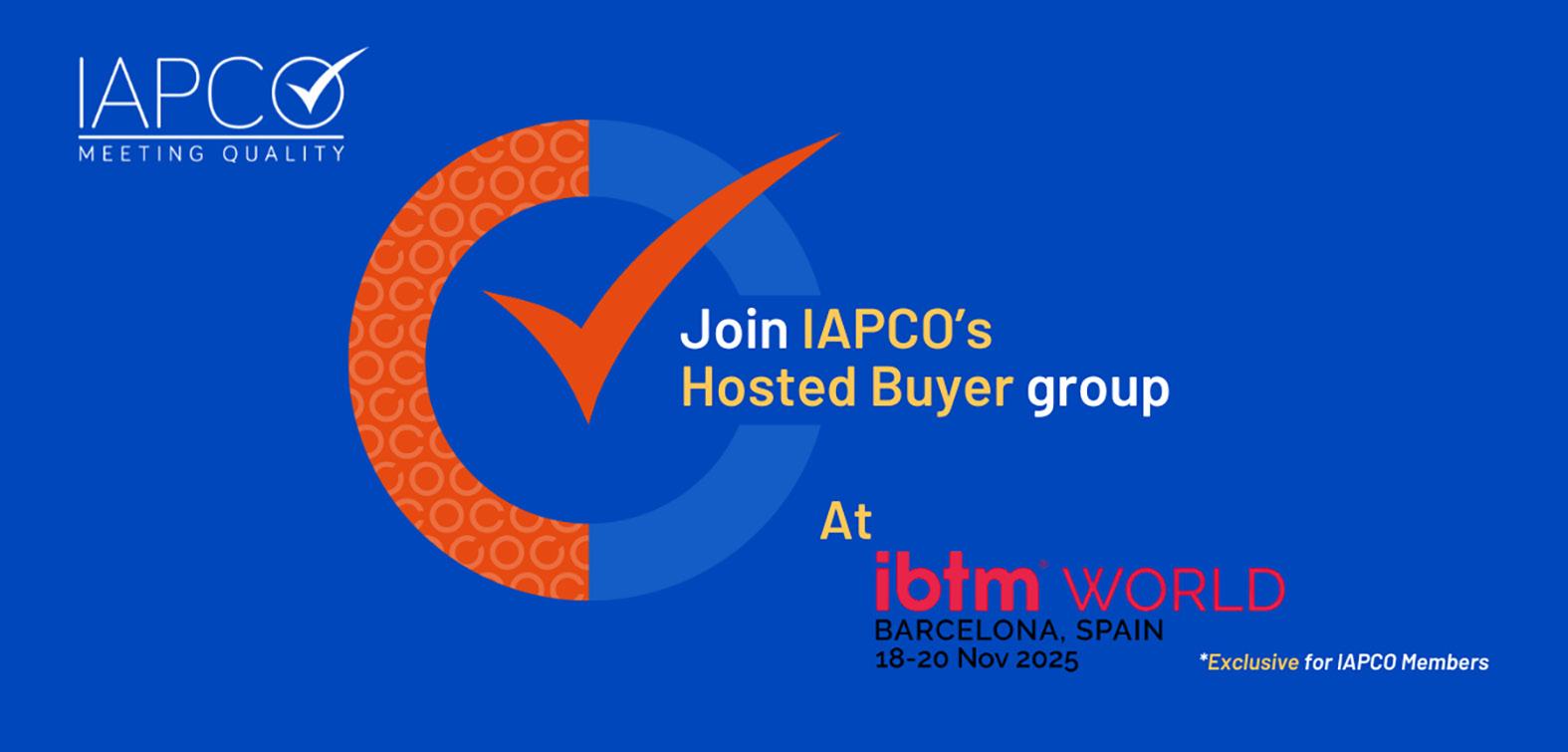
18–20 November | Barcelona, Spain
EXCLUSIVE TO IAPCO MEMBERS
Following a record-breaking presence at IMEX Frankfurt 2025 — and the success of our first-ever Hosted Buyer Group at IBTM World last year — IAPCO is returning to Barcelona with another exclusive Hosted Buyer experience for its Members, proudly marked by the IAPCO seal of Excellence.
What’s included:
Hosted travel to and from Barcelona
Free local transfers
Complimentary accommodation
Meetings with 3,000+ global suppliers
Access to 12,000+ MICE professionals
A curated education and networking programme
IAPCO Members can register their interest on the official IBTM website using the IAPCO Group Code. The Code and further details are available on the IAPCO Member Hub.
Key Deadlines:
1 September – Long-haul buyers
30 September – European buyers
Don’t miss this chance to join us in Barcelona as we continue #UnlockingExcellence together!


As the first milestone in the IAPCO–ICCA Memorandum of Understanding, IAPCO was proud to co-host the inaugural Capacity Building Workshop on 9 July 2025 at the Sava Centre, Belgrade. This strategic partnership is focused on strengthening the global meetings industry by supporting professional development in underserved regions.
Led by IAPCO President Sissi Lignou and ICCA Regional Director Europe Efi Koudeli, the workshop welcomed over thirty participants – PCOs and DMCs from across SouthEastern Europe – for a hands-on programme designed to equip professionals with practical tools and collaborative strategies for sustainable growth and high-quality event delivery.
'At IAPCO, we are extremely proud to have joined forces with ICCA to empower and uplift meeting professionals. This workshop wasn’t just engaging and highly successful – it marked the beginning of something truly powerful. I’m excited to see where this journey takes us next,' stressed Sissi.
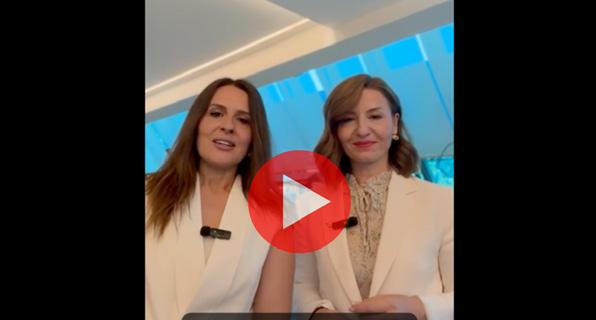


'At our first-ever capacity building workshop together with IAPCO, we set the stage in Belgrade with incredible engagement and energy. This collaboration marks just the beginning — a significant step forward in strengthening our capacity to engage and develop more PCOs within our industry,' said Efi.
Watch the video featuring Sissi and Efi as they reflect on the workshop’s success and the broader significance of the ICCA–IAPCO MoU. Their message is clear: collaboration is key to continuing to unlock excellence in the global meetings industry.
This successful workshop marks just the beginning of future ICCA–IAPCO initiatives to continue #UnlockingExcellence through #UnlockingEducation. Stay tuned – more impactful collaborations and regional initiatives are on the horizon.
In addition, Sissi represented the IAPCO global community as a guest panellist at the ICCA Mediterranean Chapter Meeting, held from 9–11 July in Belgrade.
In the panel 'Beyond the Bid Book: How Association Meetings Transform Society and Elevate Knowledge-Driven Destinations', Sissi joined fellow panellist Paola Padovani (Business Development Director, Triumph Group; National Councillor, Federcongressi) and moderator Valentini Amarantidou (Partner & Director of Development, ARTION Conferences & Events) to explore the transformative power of association meetings — from driving scientific advancement and global knowledge exchange to creating enduring legacies for host destinations.
From her role as IAPCO President, Sissi highlighted the value IAPCO brings to the industry and its members, and advocated for the power of PCOs to shape impactful events and drive excellence across the sector.
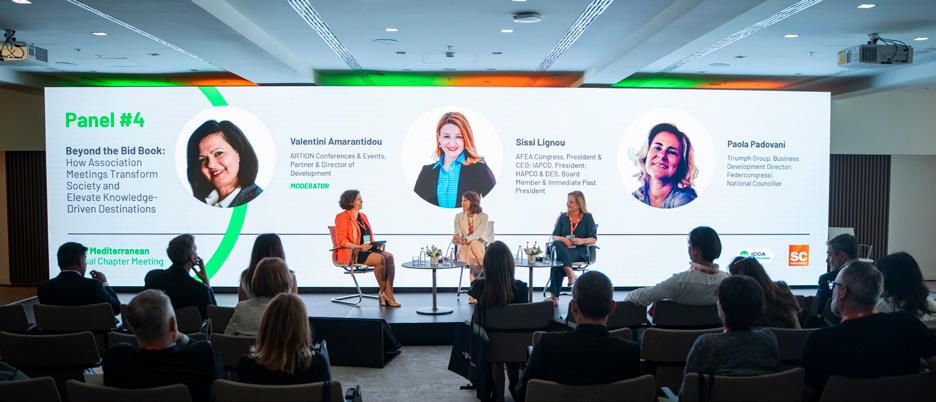
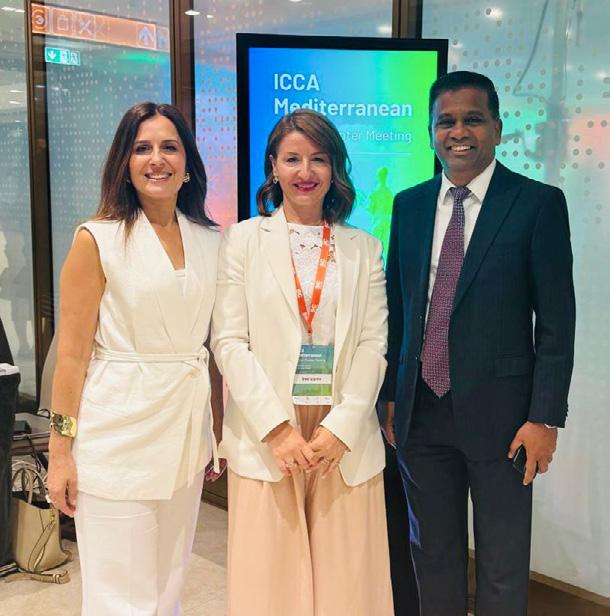
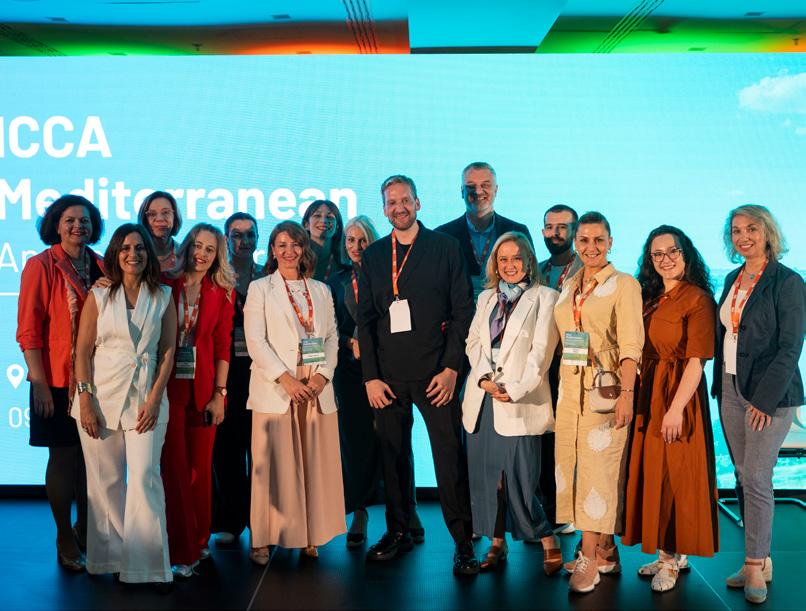
As the global events industry enters a new era – marked by personalisation, digital innovation and a rising demand for sustainability – Athens stands confidently at the forefront. In a time when meaningful human connections must integrate seamlessly with cutting-edge technology, the Greek capital offers a compelling balance of both.
At This is Athens Convention & Visitors Bureau, we work with our destination partners to help PCOs extend the event journey beyond the meeting room. By leveraging deep local knowledge and strong ties across academic, institutional, and private sectors, we strengthen your bid and support successful delivery. Our aim is to ensure every delegate’s experience is rich in content, connection, and cultural context—lasting well beyond their return home.
Athens’ rise on the global stage has been significant. In 2024, the city achieved its highest-ever position in the ICCA rankings – tenth globally and seventh in Europe for international association meetings – placing it among the most influential destinations in the international business events sector.
This momentum is backed by outstanding infrastructure and a unique setting. Athens combines state-of-the-art venues with a backdrop of ancient heritage and natural beauty. Whether hosting on the scenic Athenian Riviera or in the historic heart near the Acropolis, planners will find technologically advanced, inspiring spaces. Delegates can explore a walkable city centre rich in landmarks, gastronomy and vibrant street life – and relax by the sea, just a short tram ride away.
Sustainability is not an afterthought – it is a guiding principle in Athens’ development as a premier events destination. By its very design, Athens naturally supports low-impact event planning. But the city is also taking bold, strategic steps to future-proof its tourism and events ecosystem. The launch of the Sustainable Tourism Observatory by our parent organisation, Develop Athens S. A., marks a significant milestone. This initiative enables the city to monitor tourism’s impact in real time and guide decision-making with reliable, data-informed insights.
This follows the city’s pivotal 2024 Carrying Capacity Study, which evaluated the strain on infrastructure and resources across key neighbourhoods. The study identified early indicators of tourism pressure and introduced practical recommendations









Dates for your diary for education, networking and professional development provided and supported by IAPCO.

20—21 August 2025
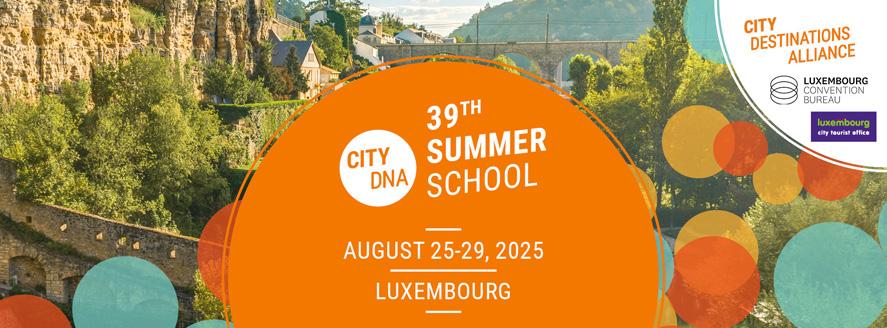
EXPLORE a world of opportunities Connect with your most creative side and find inspiration with the best speakers and exhibitors in a networking environment that has become the meeting point for the co-creators of the industry's leading events in America.







The 39th edition of the CityDNA Summer School returns this August to Luxembourg, offering a deep dive into the structure and dynamics of the meetings industry. With a mix of theory, European best practice and real-world case studies, the programme equips early-career professionals with the tools and insights to thrive in one of tourism’s most impactful sectors.


25—29 August 2025
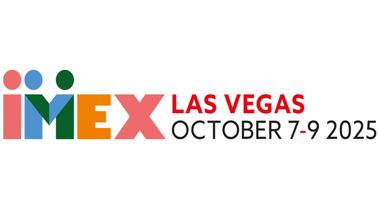
7—9 October 2025




IAPCO is proud to continue its long-standing collaboration with CityDNA in delivering top-level education — a shared commitment to #UnlockingEducation and Excellence across our industry.
Giulia Sarri, AIM Group, will be representing our IAPCO community during the PCO session on day 1 so stay tuned for more details on IAPCO’s contribution to this year’s programme.





IMEX America is the largest trade show for the global meetings, events and incentive travel industry. The show brings the meetings industry together to do a year’s worth of business under one roof.

Suppliers and buyers from every sector of the meetings industry come together at IMEX, held at Mandalay Bay Resort and Casino, Las Vegas.










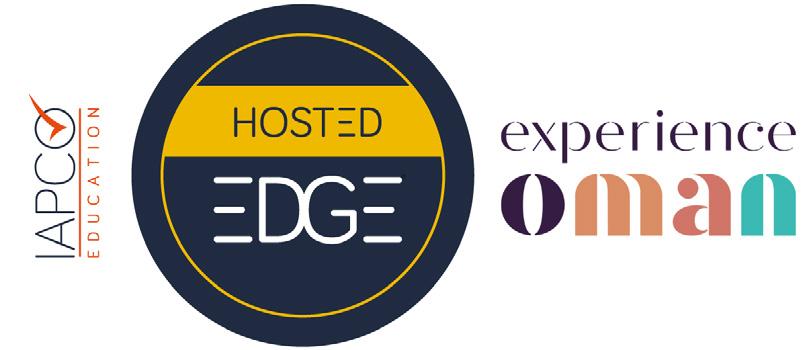

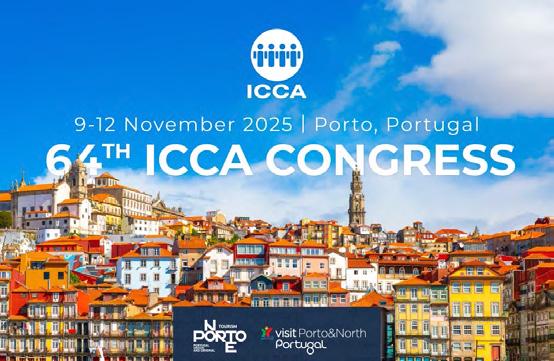


IAPCO EDGE Heads to Muscat: Unlocking New Learning Opportunities in the Gulf




IAPCO is pleased to announce that a Hosted EDGE Seminar will take place in Muscat, Oman in October 2025, delivered in partnership with the Oman Convention Bureau, part of the Ministry of Heritage and Tourism. This collaboration reflects a shared commitment to advancing professional development and raising international standards across the Gulf and wider Middle East region. The seminar will bring IAPCO’s globally recognised educational expertise to Muscat, offering a highimpact learning experience tailored to professionals across the region’s business events ecosystem.

Further details — including confirmed dates, programme highlights, and registration information — will be announced soon.








Uniting the Global Business Events Community. When our global community unites, the energy is unstoppable. The 64th ICCA Congress in Porto, Portugal, will offer unparalleled opportunities to connect, collaborate, learn and innovate.





Join IAPCO's Hosted Buyer Programme and connect with the global events industry’s key players under one roof in the heart of Barcelona. Meet the right people for your business, workshop business challenges into opportunities, build connections and gain industry insights. Experience three days of innovation and collaboration.














The International Pharmaceutical Congress Advisory Association (IPCAA) organises the Annual Seminar on Compliance, a two day conference for the purpose of enhancing the dialogue between all the major players in medical meetings.










ERASMUS
Our Business Development Director recently had the pleasure of joining the Communication and Storytelling Workshops co-hosted by IAPCO and the Leading Centres of Europe in Vienna. The two-day programme offered more than just inspiration, it sparked ideas for how we can tailor powerful communication techniques to our own context.
Alongside peers from eleven IAPCO Member PCOs and twelve LCE institutions, we explored storytelling frameworks, persuasive messaging and collaborative roleplaying in an energetic and open exchange of ideas.
Building on this experience, we’ve already delivered tailored internal sessions to select team members who could immediately apply the insights into their roles.
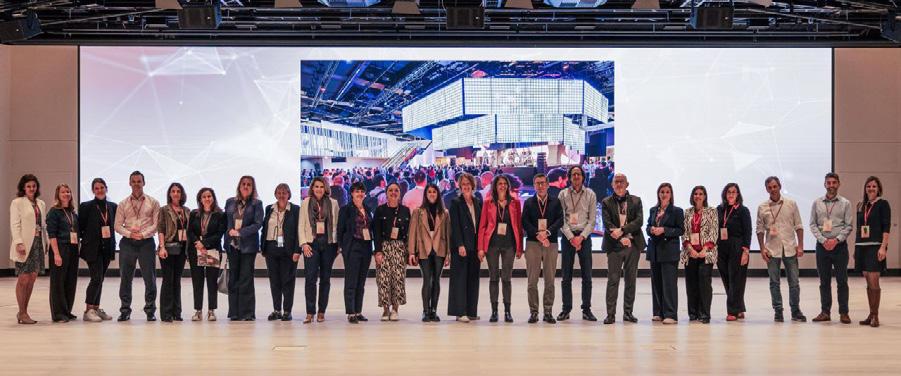
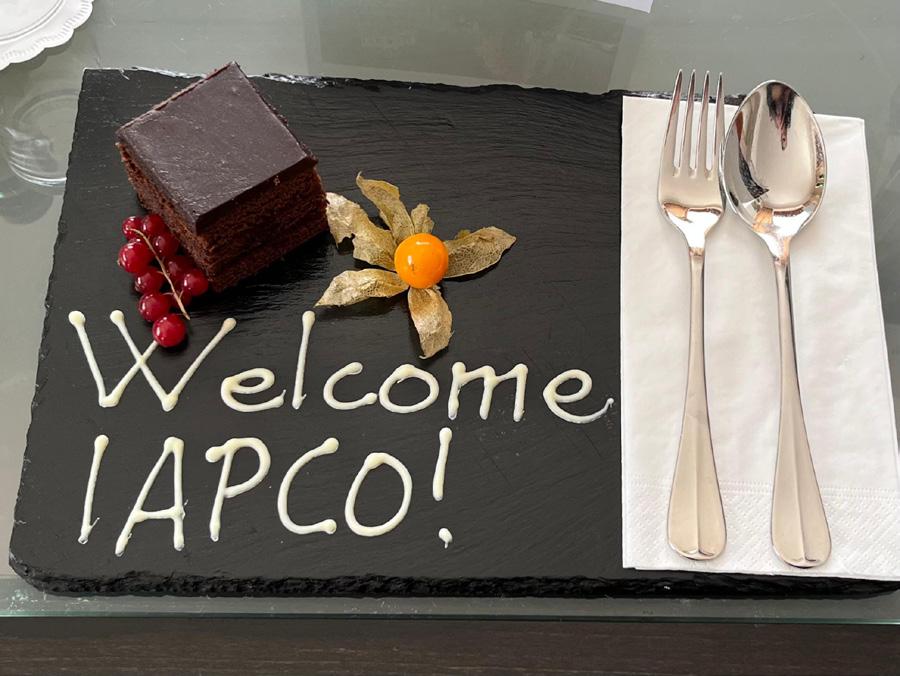
ERASMUS S.A.
This May, Erasmus S. A. curated a conference experience that bridged scientific excellence with audience interaction at the 44th Athenian Urology Days, hosted in Athens, Greece. This year’s event moved beyond traditional presentations by integrating hands-on, sponsor-led activations that elevated engagement.
Together with the congress sponsors, Erasmus introduced interactive stations, real-time Q&A hubs and simulation zones, allowing participants to deepen their learning through live demonstrations and product engagement. The initiative aimed to transform passive listening into active exploration, fostering memorable touchpoints between delegates and scientific innovation.



AIM Group International and Fandango Club announced a strategic partnership that will enable the companies to combine planning, creativity and engagement into a unique, integrated offering.
Following years of collaboration on institutional, corporate and consumer projects, the two companies have decided to combine their strengths. AIM Group brings extensive experience in managing complex events, as well as an innovative, technology-focused and strategic consulting approach. Fandango Club is renowned for its ability to create original formats and content that engage increasingly broad communities.
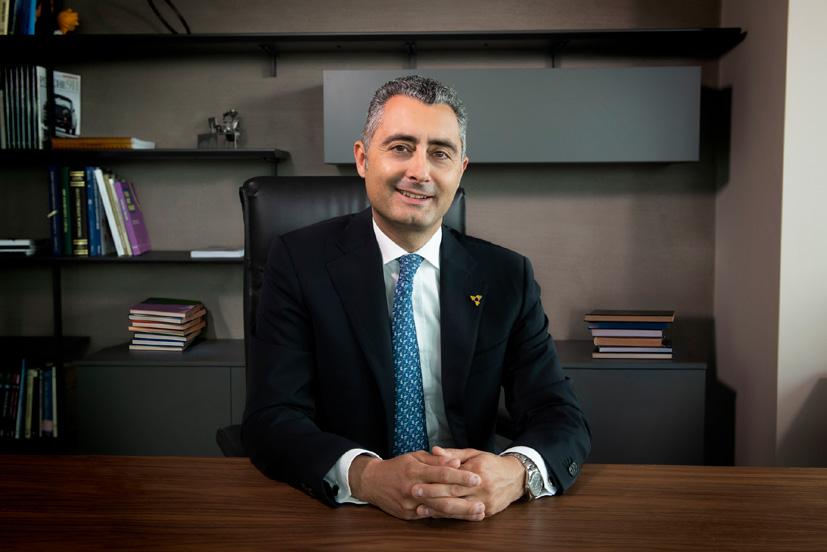

AIM Group International designed and delivered the inaugural FIRA Gala for Research in Rheumatology – Women in Motion, held on 20 May at Milan’s Leonardo da Vinci National Museum of Science and Technology. Far more than a traditional fundraising dinner, the event was a multi-sensory cultural journey blending music, dance, art and science at the highest level, to support the projects of the Italian Foundation for Rheumatology Scientific Research (FIRA).
The gala featured exclusive museum tours, a moving violin performance by Milan Conservatory musicians, and a captivating ballet by FIRA ambassadors Nicoletta Manni and Timofej Andrijashenko, esteemed étoile and principal dancer of Teatro La Scala. A charity art auction, thanks to the support of more than thirty contemporary artists, including rare items like Carla Fracci’s commemorative medal, further enriched the programme.
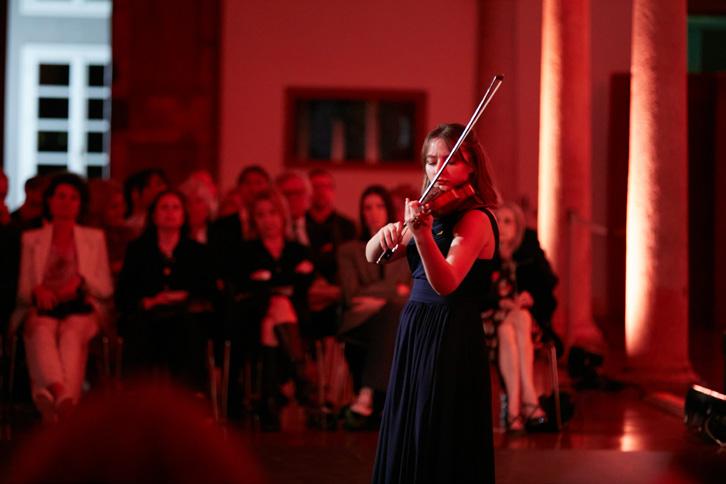
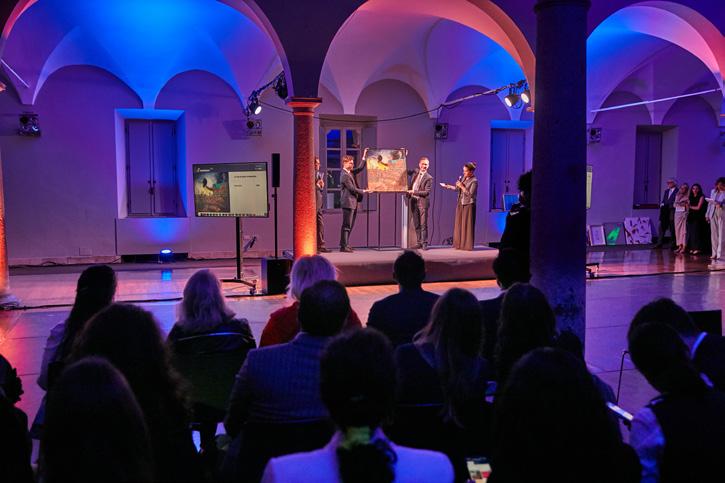
Two international conferences beyond Athens: Promoting extroversion and regional development through congress tourism
CONVIN remains committed to showcasing Greece as a leading destination for congresses, by actively supporting events beyond Athens, highlighting both the scientific excellence and the economic and touristic value for local communities.
In the first half of 2025, two high-profile international conferences were successfully held in two distinctive cities: Alexandroupolis and Chania:
1. European Summer School of Internal Medicine (ESIM 2025) Alexandroupolis. 1–7 June 2025
2. 10th Mediterranean Neuroscience Society Conference (MNS 2025) Chania. 7–11 June 2025


CPO HANSER SERVICE
The 10th World Congress on ADHD, held from 8–11 May 2025, in the beautiful city of Prague, marked a significant milestone in the history of ADHD conferences. Organised by the World Federation of ADHD and supported by CPO Hanser Service since 2009, this year's congress was the largest ever, with over 2,400 participants and exhibitors from seventy-nine countries.
The event kicked off with a grand opening ceremony featuring a mesmerising ballet performance of ‘Clara’s Dream’ from The Nutcracker and an exquisite art collection by Jérémy Piquet. Piquet is a visual artist who, after being diagnosed with ADHD in adulthood (around age thirtynine), created a deeply personal and poetic project to explore and express his experience with the condition.
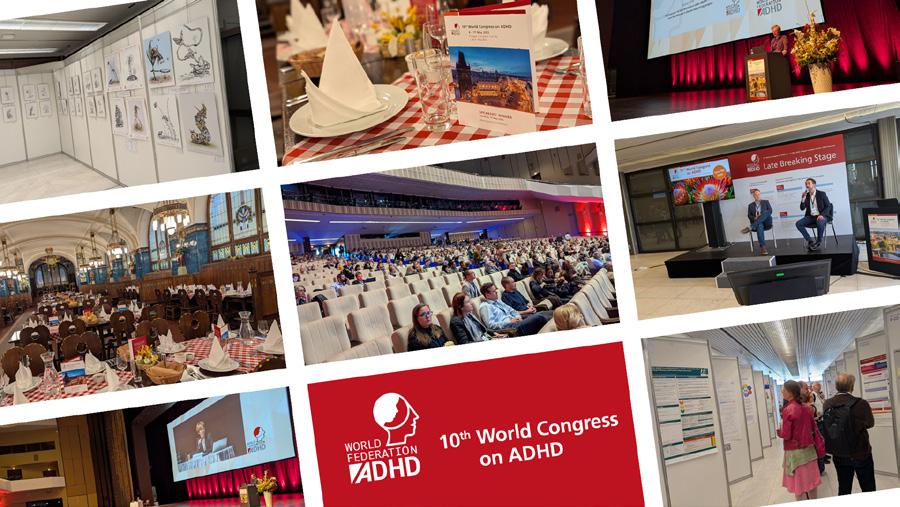
AFEA Congress was honoured to be represented by its CEO, Sissi Lignou, at the recent high-profile networking dinner and weekend hosted by The Women Network at Hyatt Regency Thessaloniki. The event, now an established platform for female enablement and professional connection, welcomed a select group of twenty-five women leaders from diverse industries for two days of dialogue, inspirational exchange and connection.
While the programme included wellness sessions, thought-provoking discussions and culinary explorations, the first evening's elegant dinner at the Regency Ballroom stood out as a highlight of the gathering. It was during this exclusive evening that Ms Lignou participated, joining fellow professionals in a warm and refined atmosphere curated to celebrate women’s stories and achievements.
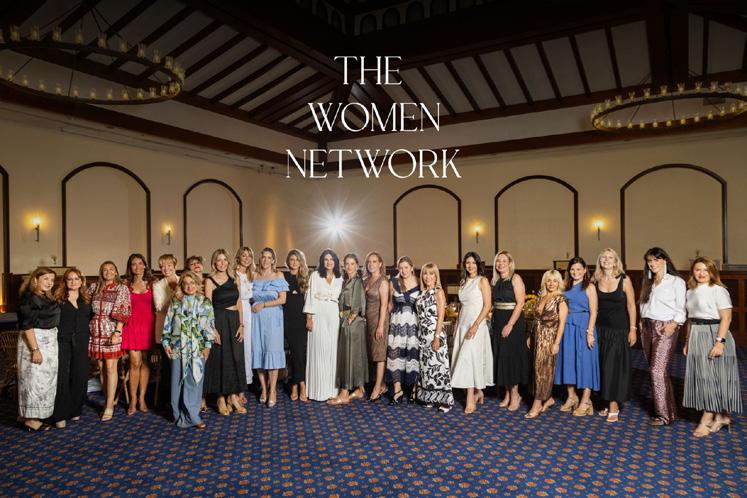

OIC Group opens a branch in Brussels and strengthens its presence in Europe: a new phase of international development begins
OIC Group, a PCO specialised in the design and management of medical-scientific, institutional, and corporate events in over 60 countries, announces the opening of a new branch in Brussels in Autumn 2025.
Entering into the decision-making heart of the European Union represents a natural evolution for a group that, for 50 years, has built relationships and value within the world of medical-scientific events, investing with even more energy in innovation, sustainability and global connections.
In this context, OIC Group’s rebranding will also be unveiled in Autumn - a new project that reflects the Group’s cultural and strategic evolution, and expresses a vision and identity increasingly aligned with its international role. Leading this new phase is Irene Serio, who has been with OIC Group for over 25 years and has been President of the Group since 2018. In April 2025, she assumed the role of CEO, continuing a path built over time and guided by a shared vision.


Two of Australasia’s largest association conferences are confirmed for 2026 at the New Zealand International Convention Centre (NZICC), with a combined total of 3,300 delegates expected to attend generating millions of dollars in economic activity.
It’s the first time in more than a decade that both the Australian and New Zealand College of Anaesthetists (ANZCA) and the Royal Australian and New Zealand College of Ophthalmologists (RANZCO) will hold conferences in New Zealand.
ANZCA is expected to attract 1,500 delegates from around the world and inject more than $3 million into the local economy.
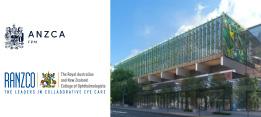
The 2025 edition of the International Federation of Exhibition and Events Services annual World Summit recently concluded in the vibrant city of Guadalajara, Mexico, marking a standout moment for the international exhibition and events community. For the more than two hundred participants from across the globe that came together at Expo Guadalajara, the Summit offered three dynamic days of connection, insight, and shared purpose – guided by this year’s theme: 'Transforming Learnings into a Sustainable Future.'
Held in one of Latin America’s most culturally rich and business-savvy cities, the Summit delivered on its promise to inspire, challenge and connect with an agenda designed not only for learning, but also for the all-important informal exchanges that are so vital to the IFES network.
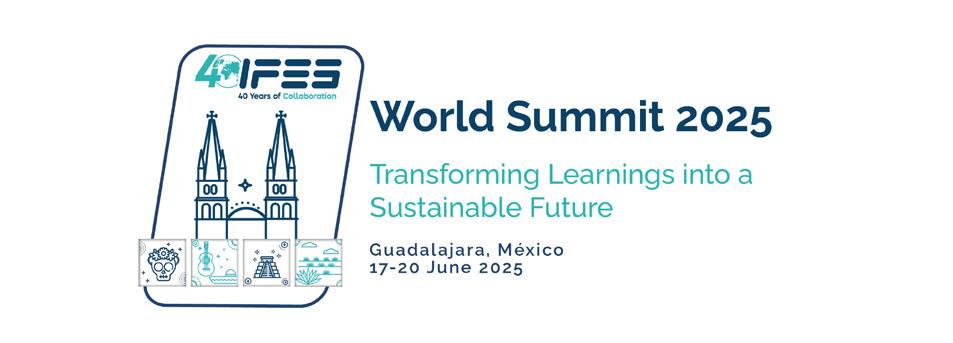
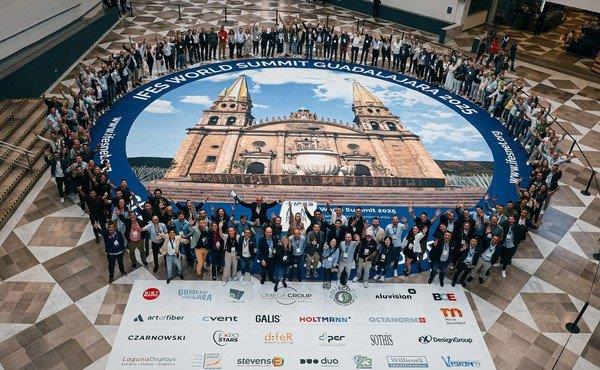
‘Great’ teams don’t just hit targets – they redefine them. At Arinex, our teams can run five concurrent event hubs across continents, exceed bid goals and still post twenty per cent yearon-year happiness gains. The secret? A lean, people-first, highperformance culture that solves problems before clients even know they exist.
Here are the seven forces that transform a good conference team into an Arinex-grade powerhouse:
1. Shared purpose
When every team member can quote the same north-star vision – ‘to be a global powerhouse that shapes the future of events by redefining how people connect, communicate and drive change' – decision-making accelerates and silos vanish. At Arinex, that vision is embedded in onboarding, planning templates and even Slack channel names. No one ever asks, ‘Why are we doing this again?’
2. Psychological safety
Feedback flows freely when people feel safe. Quarterly engagement surveys, monthly happiness scores and policies like our Right-to-Disconnect clause send a clear message: Your headspace matters as much as your skillset. The result? Issues surface early – long before show day.
3. Mastery over mediocrity
Eight specialist business units – from Registration to Sponsorship & Exhibitions – allow team members to go deep, hone their craft and deliver faster with fewer errors. No jack-ofall-trades here – just trusted experts that clients rely on.
4. Radical collaboration
Voluntary working groups on Sustainability, Culture, AI and Reconciliation cut across hierarchies and geographies. Ideas are crowd-sourced, and the best ones go straight to leadership. It’s one reason staff happiness jumped twenty per cent last year.
5. Tech as the great equaliser
Automation is our silent intern. AI transcribes meetings, Zoho dashboards surface live event data and upgraded finance software eliminates manual errors. Less time wrangling spreadsheets means more time crafting delegate ‘wow’ moments.
6. The recognition loop
What gets spotlighted gets repeated. Our monthly Shout-Out awards celebrate excellence in categories like Making It Happen, Spark of Brilliance and Relationship Rockstar. One period saw 117 nominations – proof that teammates are watching for greatness and eager to celebrate it.
7. Purpose-driven impact
Three years of Climate Active carbon-neutral certification and a RAP endorsed by Reconciliation Australia mean every team can point to a legacy bigger than profit. That sense of meaning fuels discretionary effort long after the confetti’s swept.
Together, these seven forces act like gears in a high-performance engine. Remove one, and the machine still runs. Keep them all spinning, and you don’t just meet expectations – you smash them.

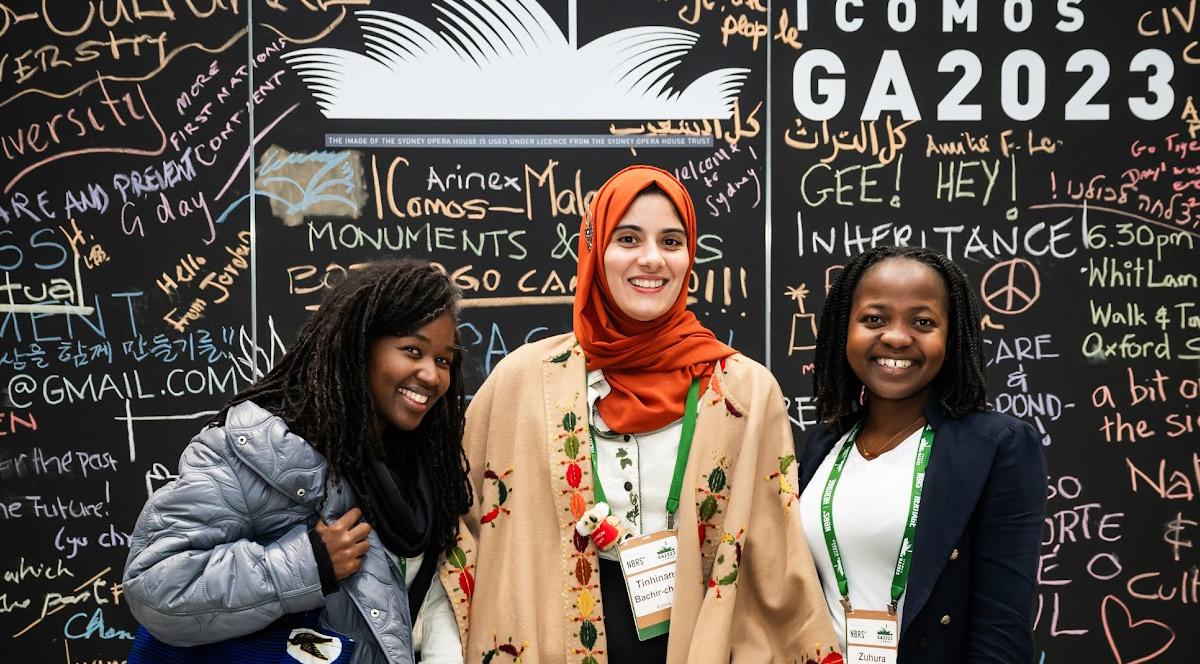
IAPCO is delighted to introduce planitswiss as the newest Accredited Member of our global network.
Here are a few words as they introduce themselves to us: planitswiss is a global event designer and producer. Headquartered in Switzerland with regional offices across four continents, we serve over 200 active clients from Fortune 500 companies to trade associations and NGOs.
planitswiss provides innovative and trendsetting services in events management from PCO services to audiovisual production.
Thanks to our proprietary event management platform developed inhouse, planitswiss supports events with state-of-the art digital services from registration and abstract management to audience engagement and post-event reporting.

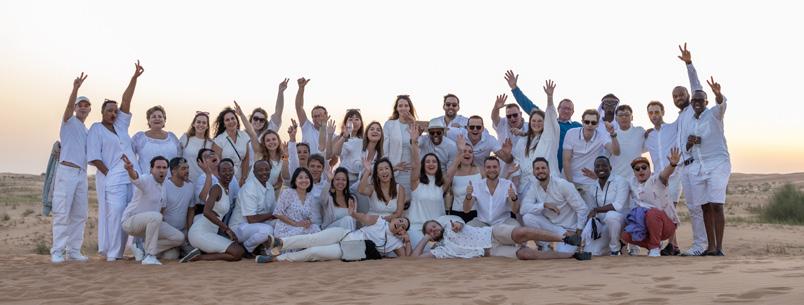
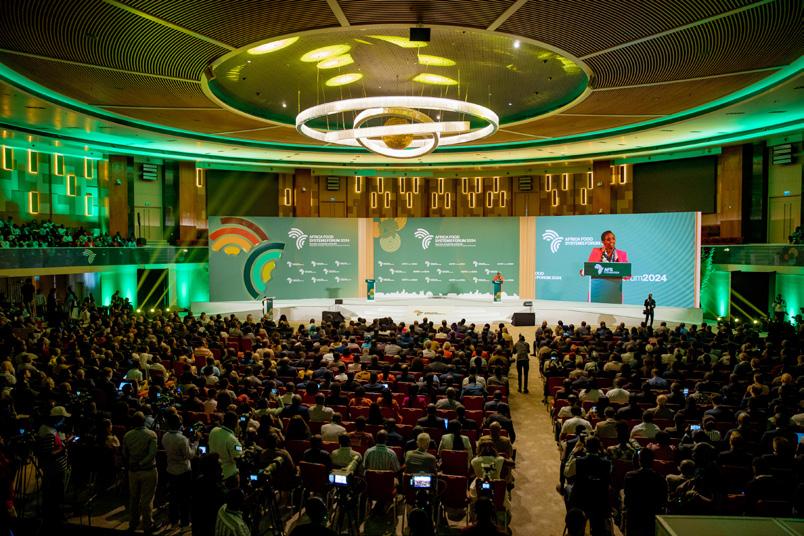
DID YOU KNOW? APP DOWNLOADS
80%
On average, 4 in 5 delegates in your congress will have the app installed. DON’T COMPRISE. MAKE IT COUNT. TRUSTED BY IAPCO AND ITS MEMBERS:
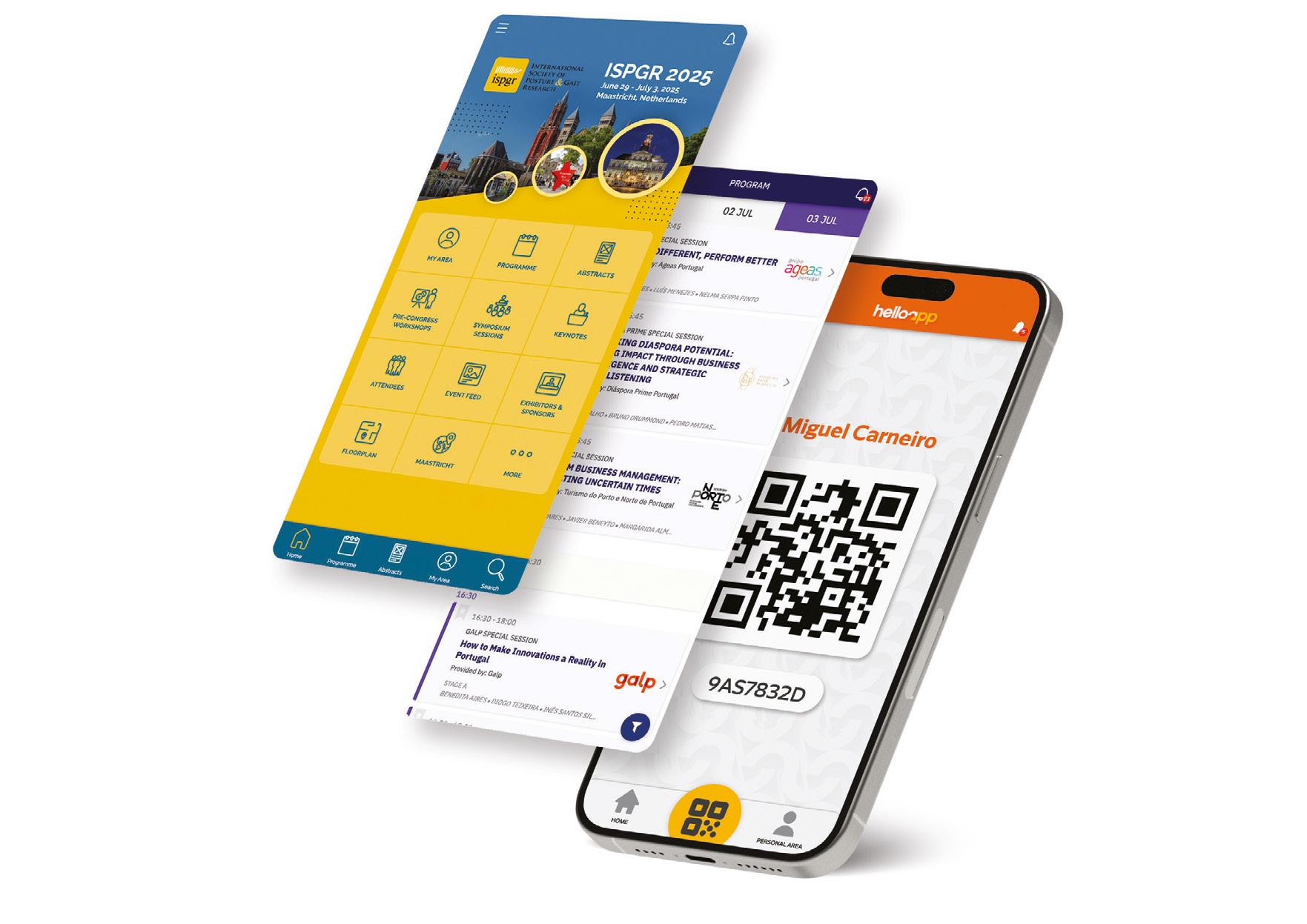





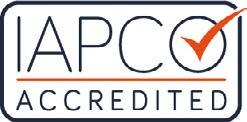


Professor Dr Frank Louwen is Head Division Obstetrics and Fetomaternal Medicine University of Frankfurt/Main and University Hospital, President of the European Board and College of Obstetrics and Gynaecology (EBCOG), PresidentElect of the International Federation of Gynecology and Obstetrics (FIGO) and, last but not least, a dedicated Frankfurt Congress Ambassador.
From 5–7 June his EBCOG Congress brought together 1,300 experts from all over Europe at Congress Center Messe Frankfurt.
We met him for a short interview in May 2025.
1. Which factors are crucial when selecting a suitable location for a medical congress?
First and foremost, there must be a wide range of nearby accommodation options – ideally within walking distance of the venue – to suit the diverse needs and budgets of attendees. Frankfurt, for example, excels in this area.
Proximity is crucial. Having hotels close to the congress venue ensures convenience and contributes to a smoother event experience. In Frankfurt, the compact layout and highly efficient public transport system make it possible to host sustainable, even car-free, congresses.
The venue itself should offer flexible spaces, from large auditoriums to smaller rooms that facilitate interaction and active participation. A successful congress is not just about listening to lectures; it’s about creating meaningful exchanges.
The city itself must offer a compelling environment with cultural, culinary and recreational offerings. Whether it is a vibrant arts scene, excellent dining options and inviting spaces like the banks of the Main River or the beautiful Palmengarten in Frankfurt for relaxation.
Lastly, accessibility is a critical factor. Frankfurt’s outstanding connectivity – by air, rail and road, and virtually around the clock – makes it an ideal hub for international congresses.
2.Which current topics and trends are particularly relevant in the medical congress industry?
The pandemic has had a profound impact on the medical congress industry, fundamentally reshaping how we share
knowledge and connect. While medical topics like vaccination and infection control gained prominence, the more lasting shift has been in how information is delivered. Virtual formats, particularly webinars, have become mainstream. Previously, young professionals would attend congresses in person to gain insights and hear from leading experts. Today, that same content is often available online – accessible from home, even on a Saturday morning with a coffee in hand.
As a result, the traditional role of congresses as vehicles for knowledge transfer is diminishing. Instead, their value as hubs for networking and peer exchange has grown significantly. Large in-person events are increasingly seen as essential platforms for building relationships and fostering collaboration. How we balance digital and physical formats is still evolving, and it's super exciting to observe how these trends will continue to shape the future of medical congresses.
3. What challenges do organisers of medical congresses face today?
One of the biggest challenges in organising medical congresses today is ensuring that the content remains both current and relevant, while also addressing the diverse needs of attendees. It’s essential to understand who the participants are: Are they early-career professionals and trainees seeking foundational knowledge? Or, are they experienced experts looking to exchange ideas and develop new programmes?
Another key challenge lies in fostering meaningful collaboration. Increasingly, it’s no longer sufficient to organise congresses within the boundaries of a single medical specialty. Today, it’s vital to engage with external organisations – such as the WHO, UNFPA, the programmes in the UN – as well as leading medical journals. These stakeholders not only contribute valuable perspectives but are also eager to identify emerging trends and participate in the dialogue themselves.

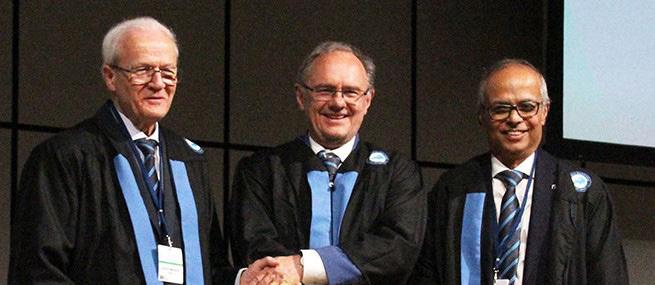

Join IAPCO President and Council as they reflect on the purpose, passion and path to #UnlockingExcellence – for our global community and the future of the meetings industry.
Step into their vision – explore the Council profiles to watch the available videos, and stay tuned for more to come.
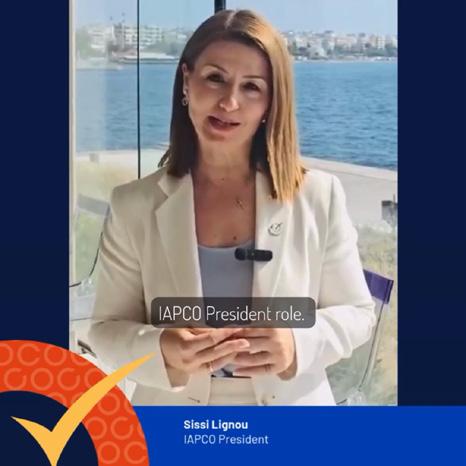
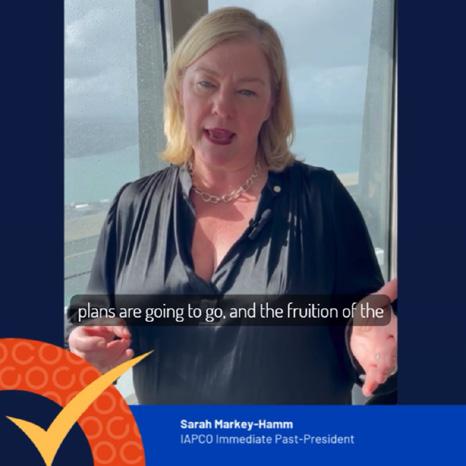
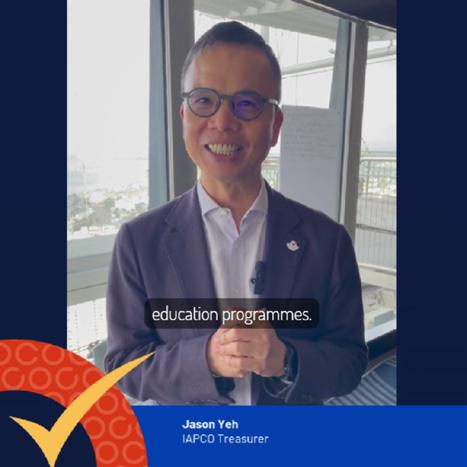
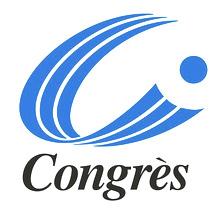
Congrès Inc., headquartered in Tokyo, Japan, produces its own events as part of its business portfolio.
One such event is ‘Japan Drone,’ launched in 2016 as Japan's first full-scale event for the consumer and commercial drone market. It serves as a forum for drone related industries – including many startup companies – to engage in practical business negotiations. The event, comprising an exhibition and international conference, has expanded in scale along with the steady growth of the drone industry. This year marked the tenth edition of the event since its inaugural launch in 2016, held with the aim of advancing the drone industry and promoting international technological exchange.
Fast Facts
Exhibition: Japan Drone 2025 | 10th Anniversary Event
Date: 4–6 June 2025 (three days)
Organisers: Japan UAS Industrial Development Association (JUIDA)
Co-sponsored by: Congrès Inc.
PCO: Congrès Inc.
Venue: Makuhari Messe
Number of Visitors
Total of 23,049 attendees over three days (previous year: 21,273)
Wednesday 4 June: 7,491 exhibition and conference participants (previous year: 6,961)
Thursday 5 June: 7,669 exhibition and conference participants (previous year: 7,062)
Friday 6 June: 7,889 exhibition and conference participants (previous year: 7,250)


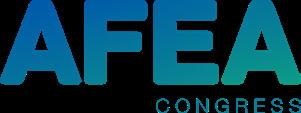

AFEA Congress proudly supported PAGE 2025 in Thessaloniki, uniting global experts in population data analysis.
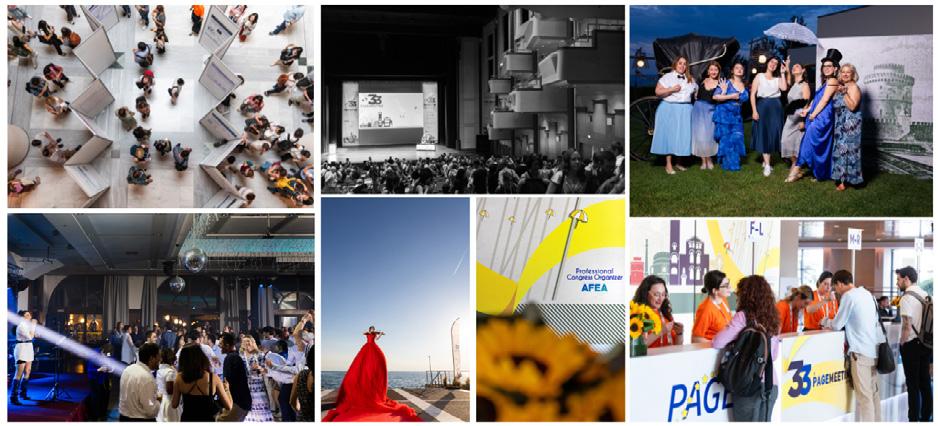

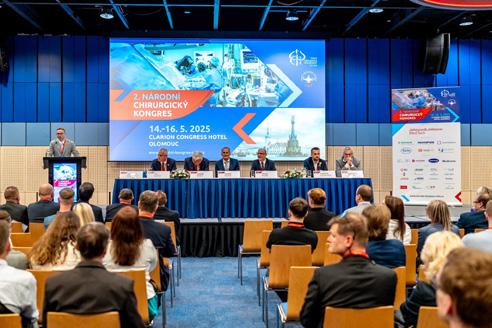
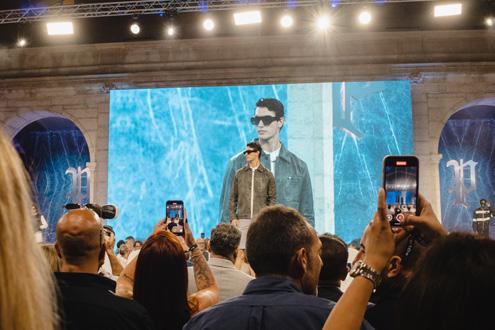

A busy time for AIM Group with activities in Portugal and Czech Republic as well as demonstrating their commitment to sustainability in their recently published 2024 Annual & Sustainability Report.
Readiness is power — Erasmus S.A. equips its people with lifesaving skills


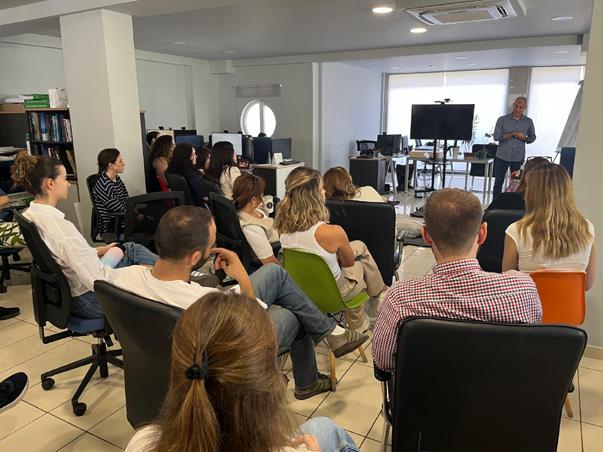

Celebrating a career that has shaped a company
Bruno Lichtinger, Executive Board Member of Interplan AG, recently celebrated his thirty-fifth anniversary with the company. Known for his operational instinct, clarity and warmth, Bruno has played a key role in Interplan’s growth and its standing in the international meetings industry. The team marked the occasion with heartfelt tributes and shared memories – a fitting celebration for a true industry practitioner. Congratulations, Bruno.
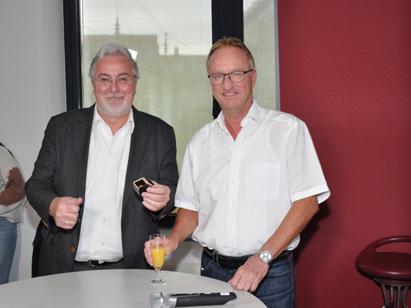
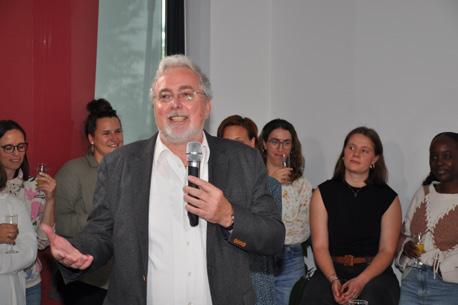

After years sprinting through Tel Aviv’s buzzing high-tech scene, I stepped into a PCO that’s been dominating the industry for decades – and it almost felt like time travel. Yesterday I was shipping new features over my morning espresso; today I was leafing through binders, chasing phone lists and saving yet another file called ‘final-final’. The change was overwhelming – yet exciting – beneath all the paper I can see vast potential just waiting for modern tools.
‘If it isn’t broken …’
The first push-back any innovator hears: Why fix what still works?
Full halls and happy delegates can hide a silent race: somewhere a lean start-up is learning to deliver our service with half the effort. Stand still, and you drift backwards.
Key takeaway – Modernise pain, preserve instinct
Early electric cars replaced every button with a giant touchscreen. Drivers soon begged for a simple volume knob. Volkswagen is now restoring physical buttons after customer backlash – they learned progress must respect muscle memory. Conference operations must strike the same hybrid balance: Rely on the know-how and emotional intelligence that sees us through a 2 a.m. crisis, while letting smart tech strip away every needless step.
Turn the tool into the workplace
‘Bar, if you could plug a USB into my head, you’d have the whole event.’ Senior Project Manager, Ortra
When the official system is just a reporting graveyard, real work escapes to emails and side files, and priceless knowhows vanish in corridor chats. You need to turn these platforms into the primary working environment. But doing so is no walk in the park.
Stay patient and empathetic, and be personally involved in the training process. Don’t expect anyone to sit through a single ninety-minute video, absorb every detail and walk away a pro. Pair it with live walk-throughs and hands-on practice so new users can turn knowledge into confident skill.
AI needs our wisdom
Gen Zs and Millennials won’t draft an email before consulting ChatGPT. AI can handle menus, seating charts and sponsor lists in seconds – but only if it’s fed with accurate context. The seasoned professional’s checklist becomes the model’s training set; the better we curate that data, the smarter the suggestions. Automation clears repetitive tasks, freeing brains for creativity and guest relationships.
No-code, real-time delivery
Every conference is a snowflake, so year-long rollouts sometimes aren’t enough. Generative AI is far more than flashy designs or LinkedIn buzzwords. It is a force multiplier that enables an innovator to ship a custom tool in days, sometimes even hours, turning what would’ve been a sixmonth deployment into a weekend sprint.
Shortcut in action
On the eve of a medical summit, signs were banned and temps kept getting lost. Despite never writing a line of code, I built a ‘Conference Compass’ with a no-code app builder, uploaded the venue map, added some Google Maps links and pushed it to every phone before dawn. No one asked directions next day – and we still reuse the app.
Bridging the Gap
In an established PCO, you might catch one colleague ordering coffee through an app while another scribbles the schedule on a sticky note. True innovation is not about ignoring those differences.
Try ideas in a safe corner
Before you draft a nine-month rollout plan, write a quick ChatGPT prompt or no code demo. A low-risk playground lets skeptics see the value without touching their daily workflow.
Pick the battles that matter
Don’t re-plumb a registration platform just to prove you can. Chase pain points that slow the whole team, then fix the easiest one first. When people feel the relief, they’ll ask for the next upgrade themselves.
Move at a human pace
Roll out changes in small bites and teach each bite. Give people time to get comfortable before moving on to the next.
Recruit true ambassadors
The obvious evangelists are the tech-savvy juniors, but the decisive voices are often the seasoned PMs who ‘run the show.’ Win those hearts by solving a problem they complain about every day – then invite them to demo the fix. Their endorsement turns adoption into culture.
Final word of advice
At my previous, AI-driven retail-tech company, the smartest move we ever made was hiring industry veterans with twenty-plus years on the floor. Their real-world insight turned clever algorithms into tools shoppers actually loved.
In our case, we start from the opposite side: we already have the experts. Our task is to give them the same power tech gave those retailers. Let AI handle the grunt work while people double down on the human moments that win hearts and sponsors; use progress for the technical stuff; save the core for the people who know it best.
Want your dinosaur to soar? Give it wings. Just don’t forget the flight manual...
Bar Gelfand, VP Marketing & Innovation, Ortra
Ltd.
